From December 2 to December 6, 2023, Prof. Ing. Otomar Linhart, DSc. actively participated in the FAO Global Sustainable Aquaculture Advancement Partnership (GSAAP) Annual Meeting and Workshop on the Promotion of Ecological Aquaculture in Shanghai. The meeting was organized and financially supported by FAO together with the Center for Ecological Aquaculture (CEA), Shanghai Ocean University and CENAKVA. During the meeting, the results achieved in 2023 as part of our membership were presented.
Zaměstnanec FROV JU Dr. Koushik Roy, Ph.D. byl pozván jako přispívající mladý vědec na čtyřdenní (16. 10. 2023 až 19. 10. 2023) workshop o tvorbě politik, který spolupořádaly Německá národní akademie věd Leopoldina a Academia Brasileira de Ciências (ABC). Akce se konala v kampusu IGB Berlin. Sešli se na něm vybraní mladí vědci v oblasti akvakultury a přední vědci zabývající se vodou z Evropy a Brazílie na intenzivním setkání, které zahrnovalo vědeckou debatu, panelové diskuse, konkláve spisovatelů, otevřenou recenzi a psaní podkapitol. Posláním bylo formulovat silný politický návrh pro tvůrce politik ve střední a východní Evropě a Jižní Americe. Zaměření politického zadání bude na „Udržitelná a oběhová akvakultura s cílem minimalizovat dopady na životní prostředí a zajistit budoucí potravinové systémy“. Koushik vyzdvihl české snahy o zavedení oběhu a předefinování udržitelné akvakultury z farmy na vidličku. Zdůraznil pokroky ve výzkumu dosažené v akvakultuře, včetně některých příkladů z 3. rámcového programu CENAKVA. Koushik je jedním z autorů návrhu politiky, který by měl být brzy zveřejněn.
Foto s laskavým svolením Markuse Scholze pro Leopoldinu.
- Fotogalerie:
- Foto:
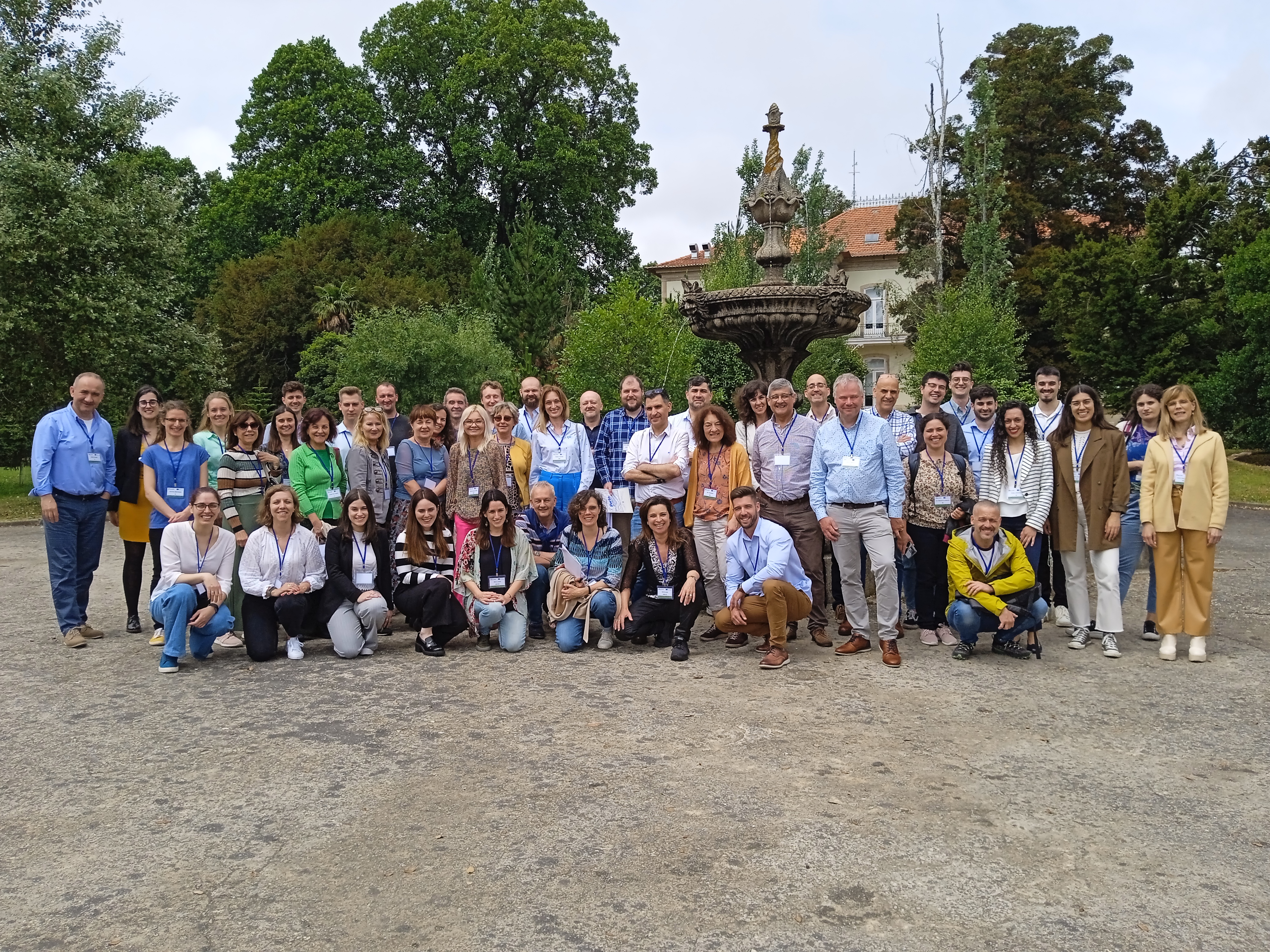 , Text k fotce:
Účastníci setkání
, Text k fotce:
Účastníci setkání - Foto:
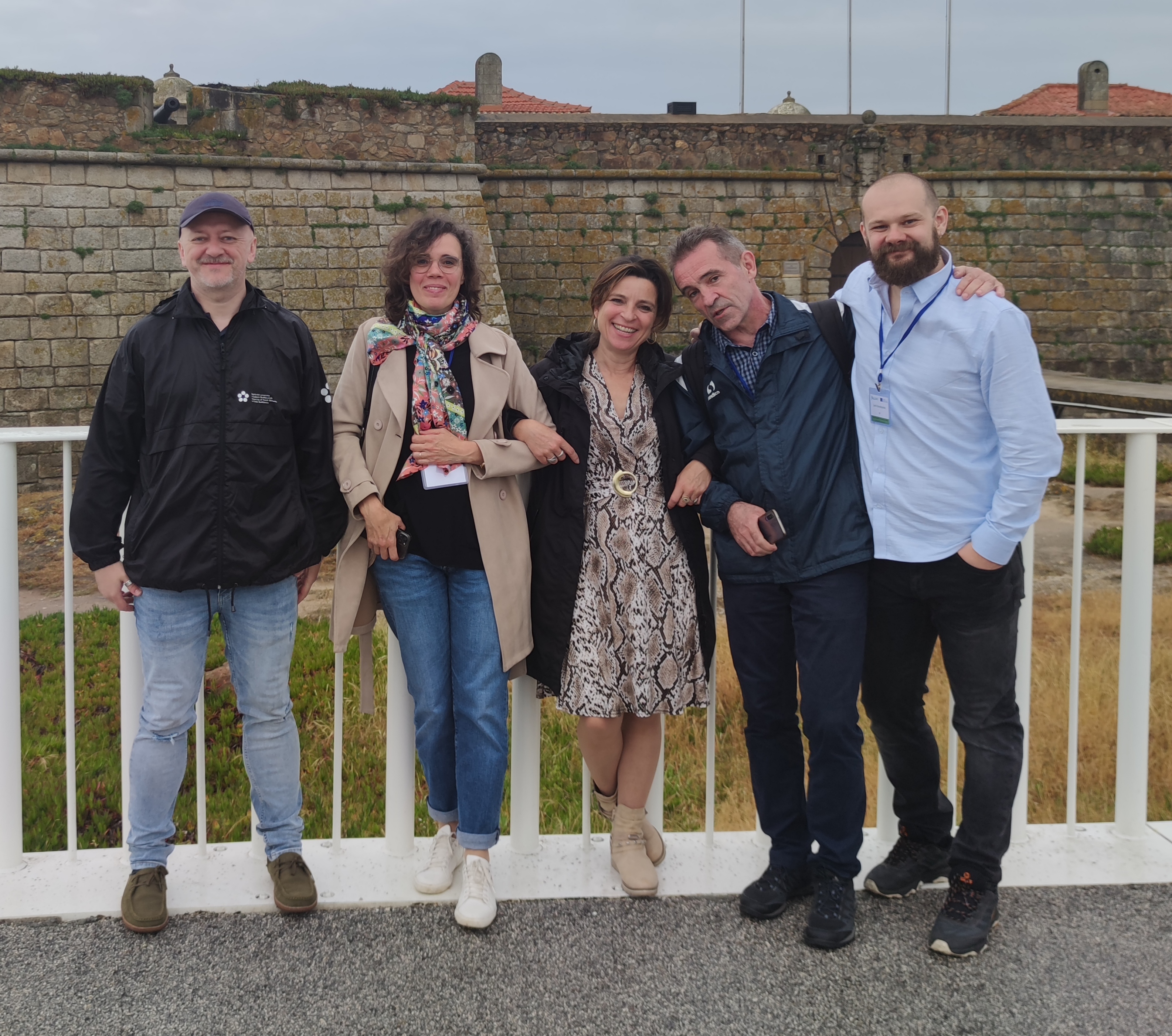 , Text k fotce:
Vědci z Fakulty rybářství a ochrany vod JU spolu s vedoucími projektu
, Text k fotce:
Vědci z Fakulty rybářství a ochrany vod JU spolu s vedoucími projektu
Projekt NeoGiANT, který je společným projektem konzorcia výzkumných ústavů v rámci programu Horizon 2020 EU, uspořádal své 3. Valné shromáždění a 6. zasedání Výboru pro řízení v Portu v Portugalsku. Cílem těchto setkání bylo projednat pokrok projektu a řešit klíčové aspekty související s pracovními balíčky, řízením projektů a strategií komunikace.
Projekt NeoGiANT si klade za cíl zkoumat potenciál využití extraktů z hroznových matolin jako řešení pro potřeby zemědělství. Projekt se zaměřuje na identifikaci vhodných bioaktivních molekul z hroznových matolin a snaží se ověřit jejich potenciální přínosy, jako jsou antimikrobiální a antioxidantní vlastnosti. Cílem je vyvinout udržitelné a ekonomicky výhodné metody pro získávání, zpracování a využití těchto bioaktivních extraktů. Projekt klade důraz na tři pilíře: využití místních zdroju biomasy, ekonomicky výhodnou a udržitelnou výrobu a začlenění funkčních složek do udržitelných systémů oběhu ekonomiky. Jako projekt v rámci Horizon 2020 EU přispívá NeoGiANT k širším cílům evropského výzkumu a inovací v zemědělském sektoru.
Vědci z Fakulty rybářství a ochrany vod (FFPW), Jihočeské univerzity, se podílejí na pracovním balíčku projektu NeoGiANT "Hodnocení antimikrobiální formulace pro uchovávání spermatu". Jejich odborné znalosti přispívají k hodnocení a vývoji antimikrobiálních formulací pro uchovávání spermatu v malém měřítku.
5. setkání účastníků projektu bude hostit Jihočeská univerzita a bude se konat v květnu 2024.
Další informace o projektu NeoGiANT naleznete zde.
- Fotogalerie:
- Foto:
 , Text k fotce:
Attendants of the meeting
, Text k fotce:
Attendants of the meeting - Foto:
 , Text k fotce:
Scientists from the Faculty of Fisheries and Protection of Waters USB together with the project leaders
, Text k fotce:
Scientists from the Faculty of Fisheries and Protection of Waters USB together with the project leaders
The NeoGiANT project, a consortium project within the EU Horizon 2020 framework, conducted its 3rd General Assembly and 6th Steering Committee meetings in Porto, Portugal. The meetings aimed to discuss the project's progress and address key aspects related to the work packages, project management, and communication strategies.
NeoGiANT aims to explore the potential of grape marc extracts as a solution for agriculture needs. The project focuses on identifying suitable bioactive molecules from grape marc and aims to validate their potential benefits, such as antimicrobial and antioxidant properties. The goal is to develop sustainable and cost-effective methods for sourcing, processing, and utilizing these bioactive extracts. The project emphasizes three pillars: the use of local biomass sources, cost-effective and sustainable production, and the integration of functional ingredients into sustainable circular economy systems. As a consortium project under the EU Horizon 2020 scheme, NeoGiANT contributes to the broader objectives of European research and innovation in the agricultural sector.
Scientists from the Faculty of Fisheries and Protection of Waters (FFPW), University of South Bohemia, are involved in the NeoGiANT project Work Package "Assessment of antimicrobial formulation for sperm preservation." Their expertise contributes to the evaluation and development of antimicrobial formulations for preserving sperm at a small scale.
The 5th Meeting of the Project participants will be hosted by the University of South Bohemia and will be held in May, 2024.
More information about NeoGiANT can be found here.
- Fotogalerie:
- Foto:
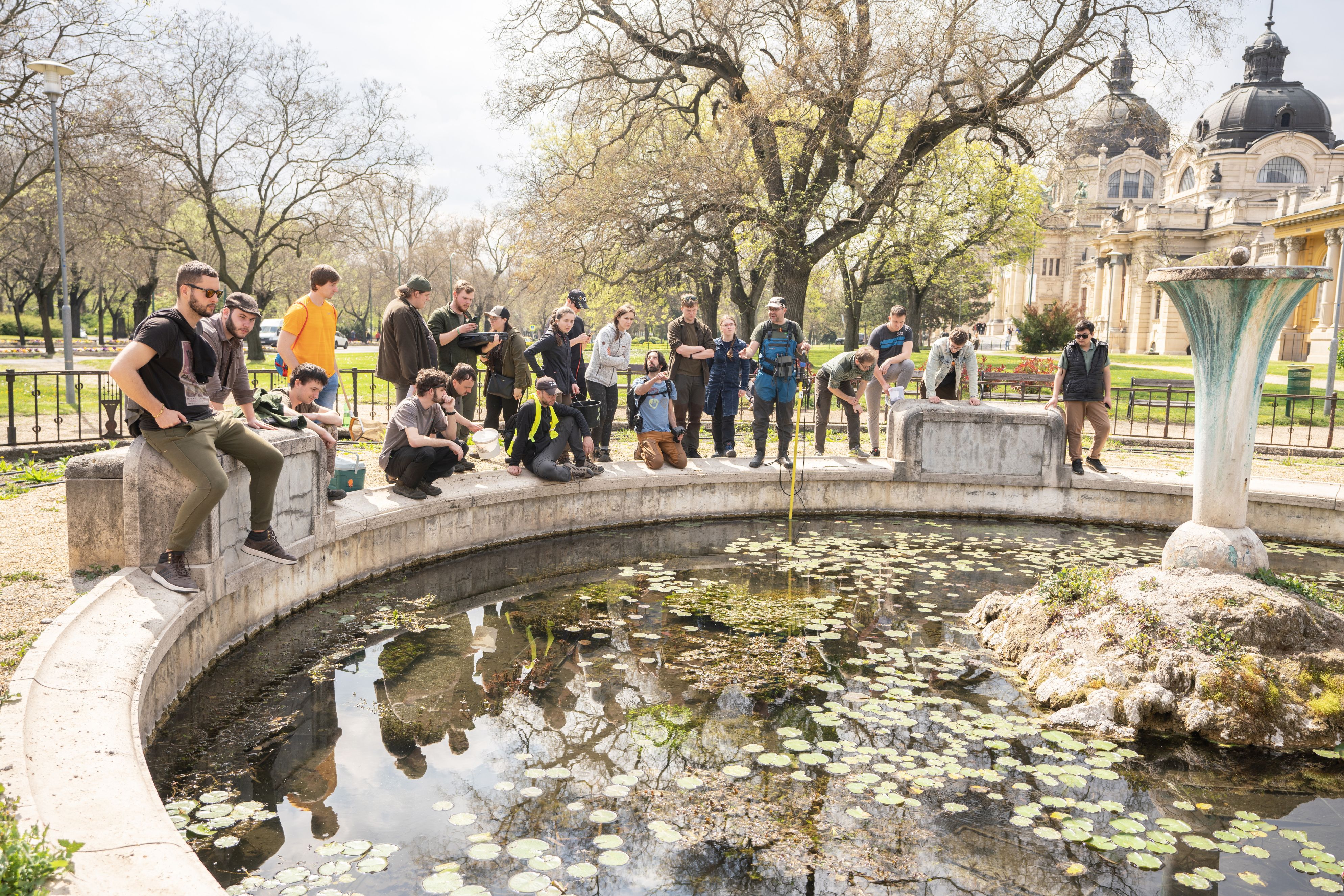 , Text k fotce:
A fountain fed by a thermal spring in the middle of Budapest in Varosliget Park hosting marbled crayfish, red shrimp and other aquarium fish and plants
, Text k fotce:
A fountain fed by a thermal spring in the middle of Budapest in Varosliget Park hosting marbled crayfish, red shrimp and other aquarium fish and plants - Foto:
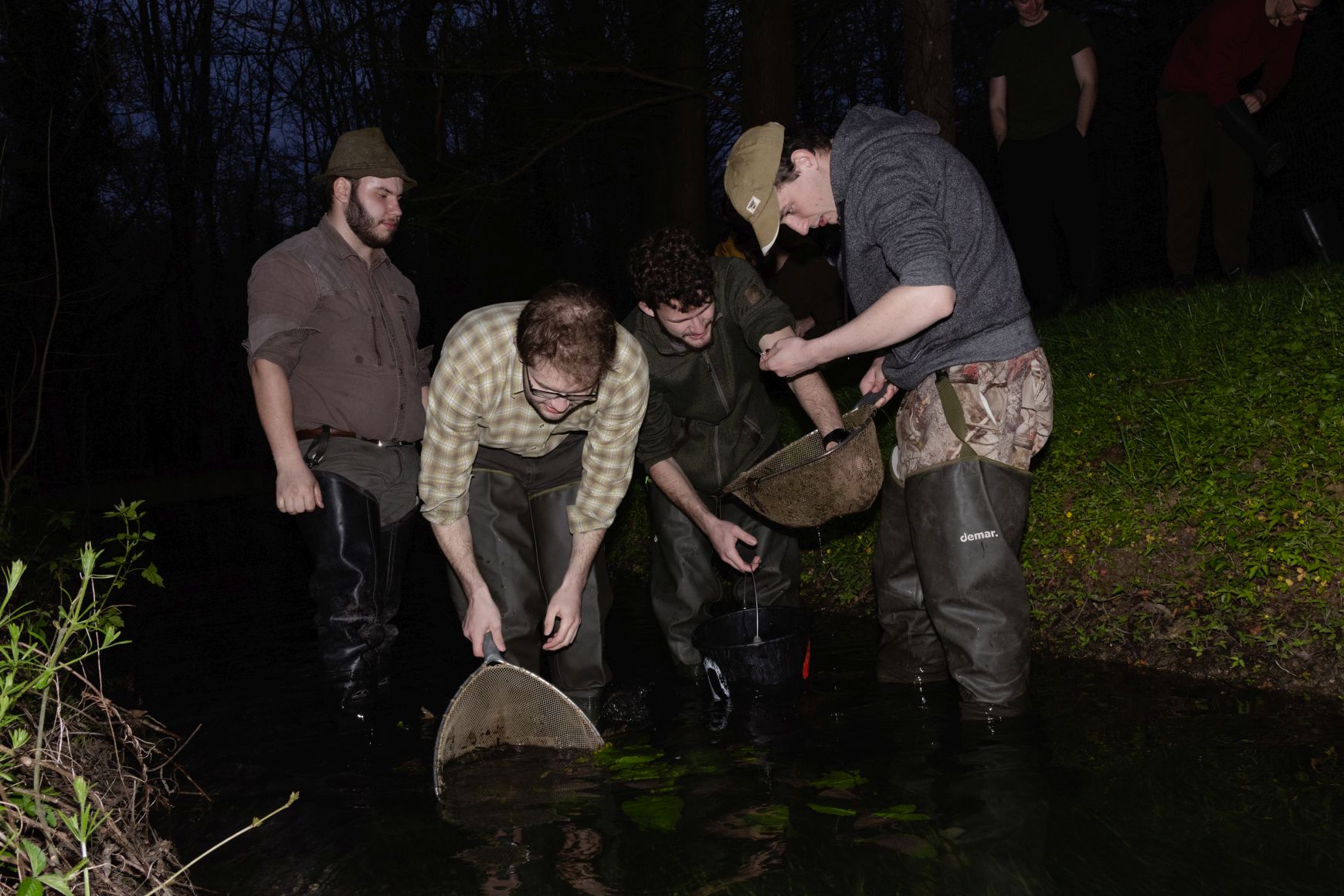 , Text k fotce:
Night fish and crayfish catching at northern outflow of the thermal lake Héviz
, Text k fotce:
Night fish and crayfish catching at northern outflow of the thermal lake Héviz - Foto:
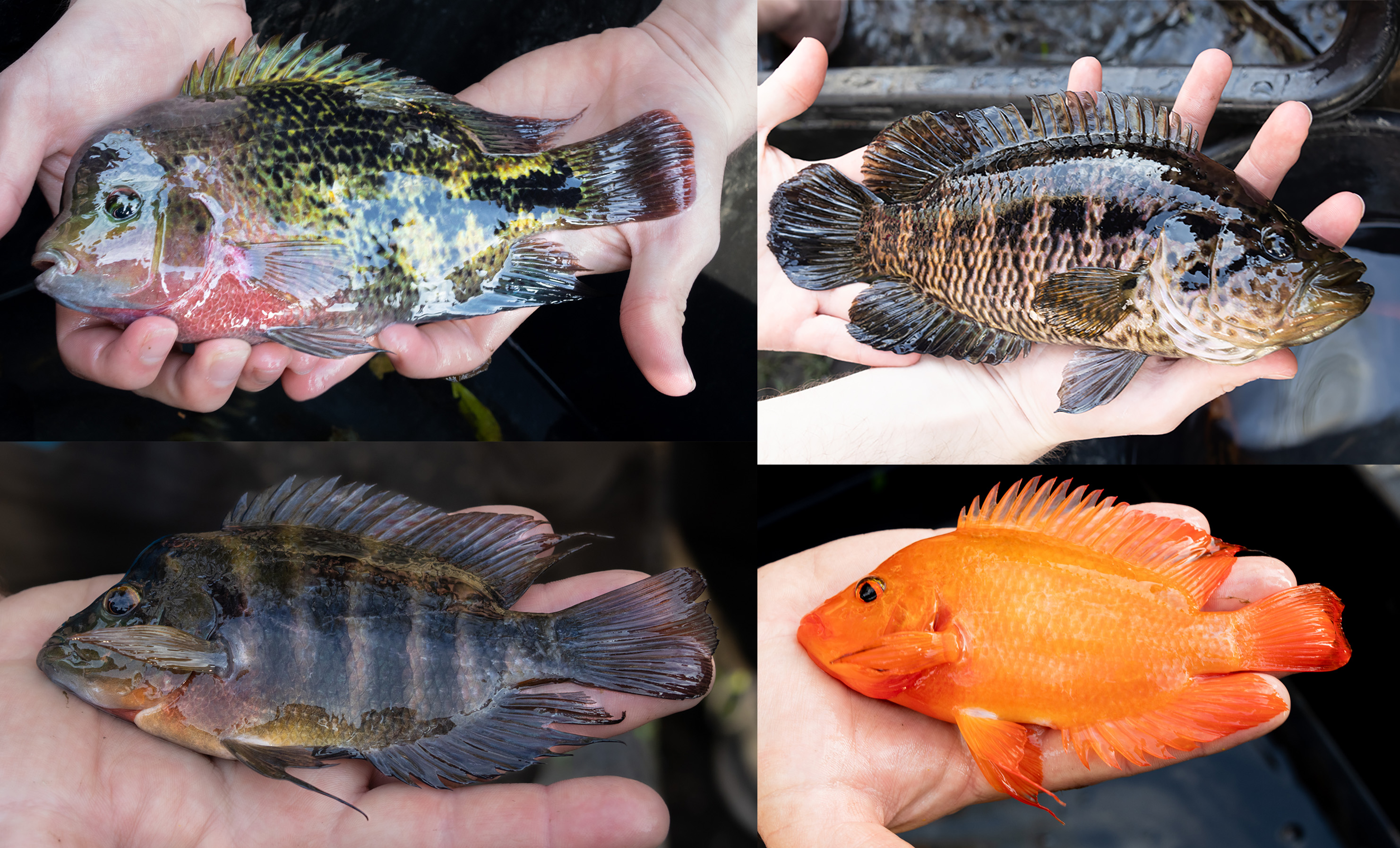 , Text k fotce:
Various species of cichlids caught in the main outlet of the thermal lake Héviz
, Text k fotce:
Various species of cichlids caught in the main outlet of the thermal lake Héviz - Foto:
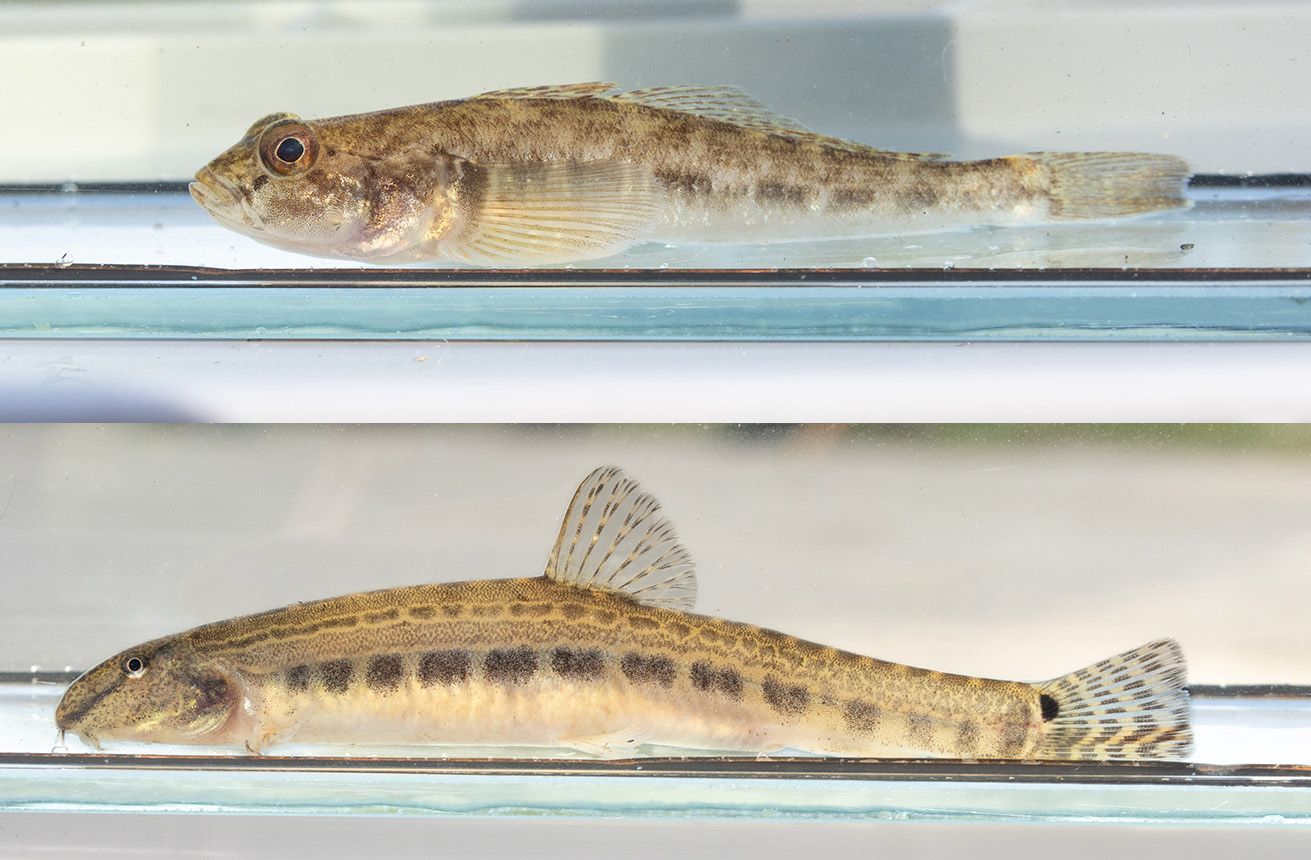 , Text k fotce:
Non-native monkey goby (top) and native Cobitis elongatoides (down)
, Text k fotce:
Non-native monkey goby (top) and native Cobitis elongatoides (down) - Foto:
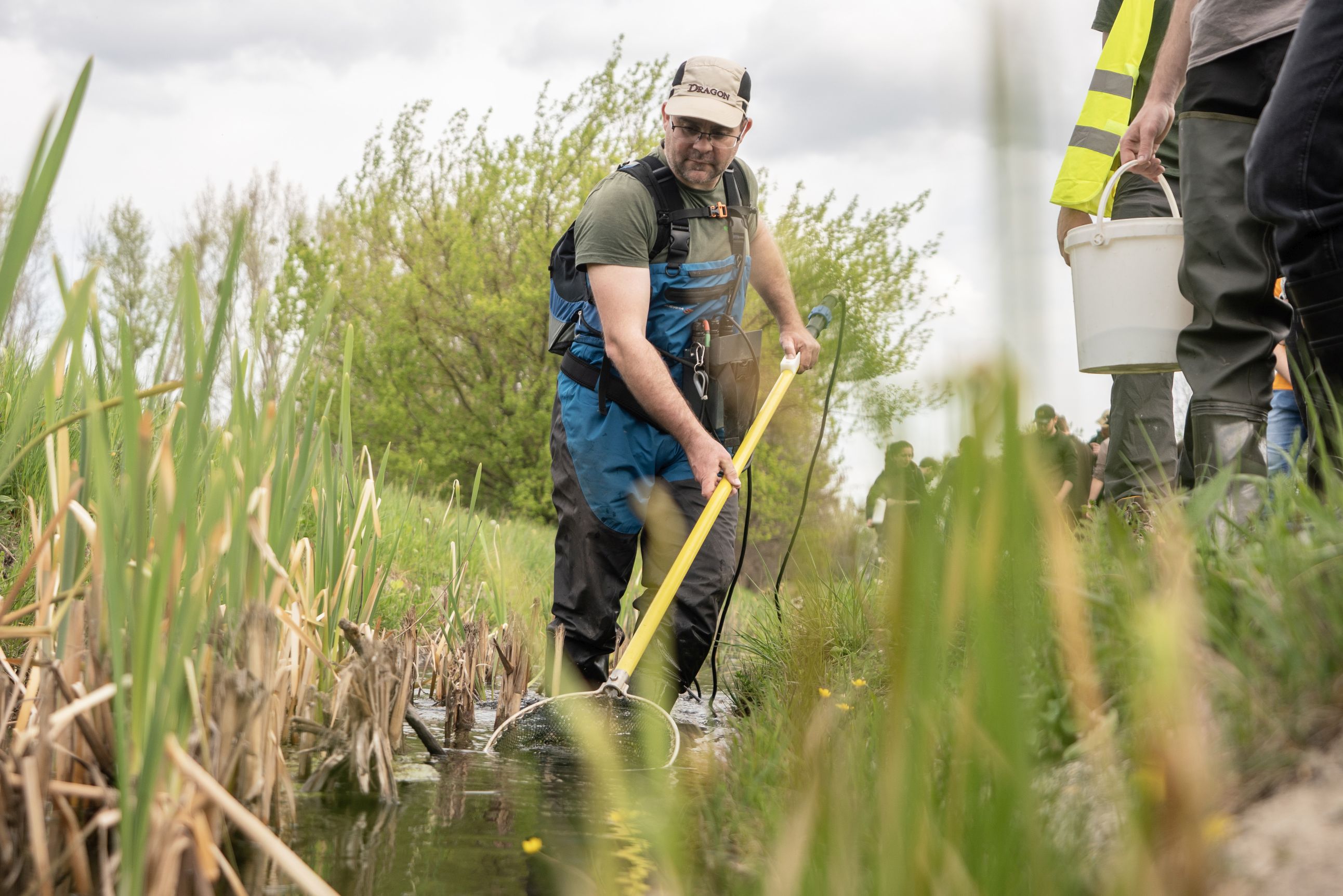 , Text k fotce:
Electro-fishing on the thermal tributary of the Barát stream
, Text k fotce:
Electro-fishing on the thermal tributary of the Barát stream - Foto:
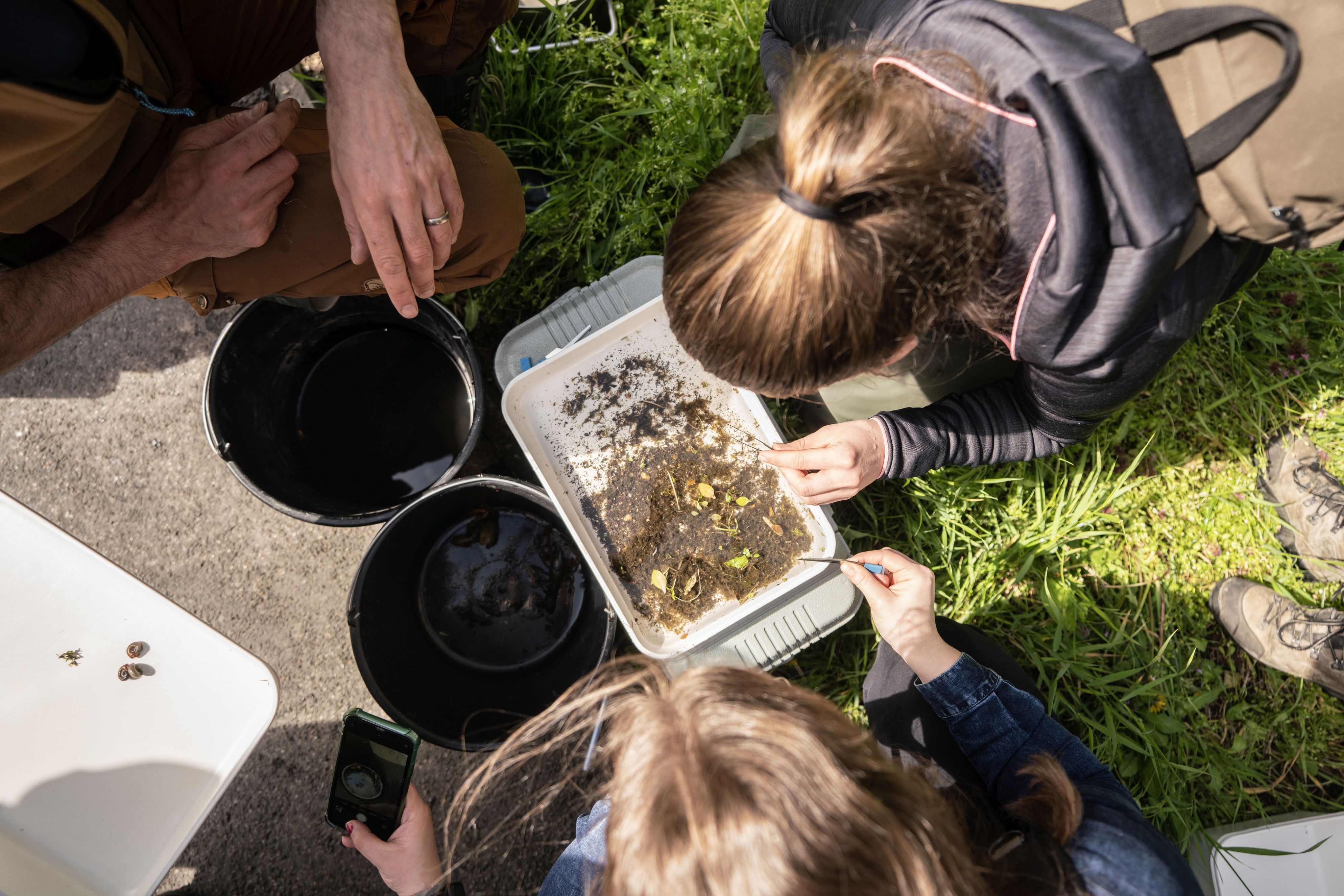 , Text k fotce:
Sorting the sample of macrozoobenthos from the thermal tributary of the Barát stream
, Text k fotce:
Sorting the sample of macrozoobenthos from the thermal tributary of the Barát stream - Foto:
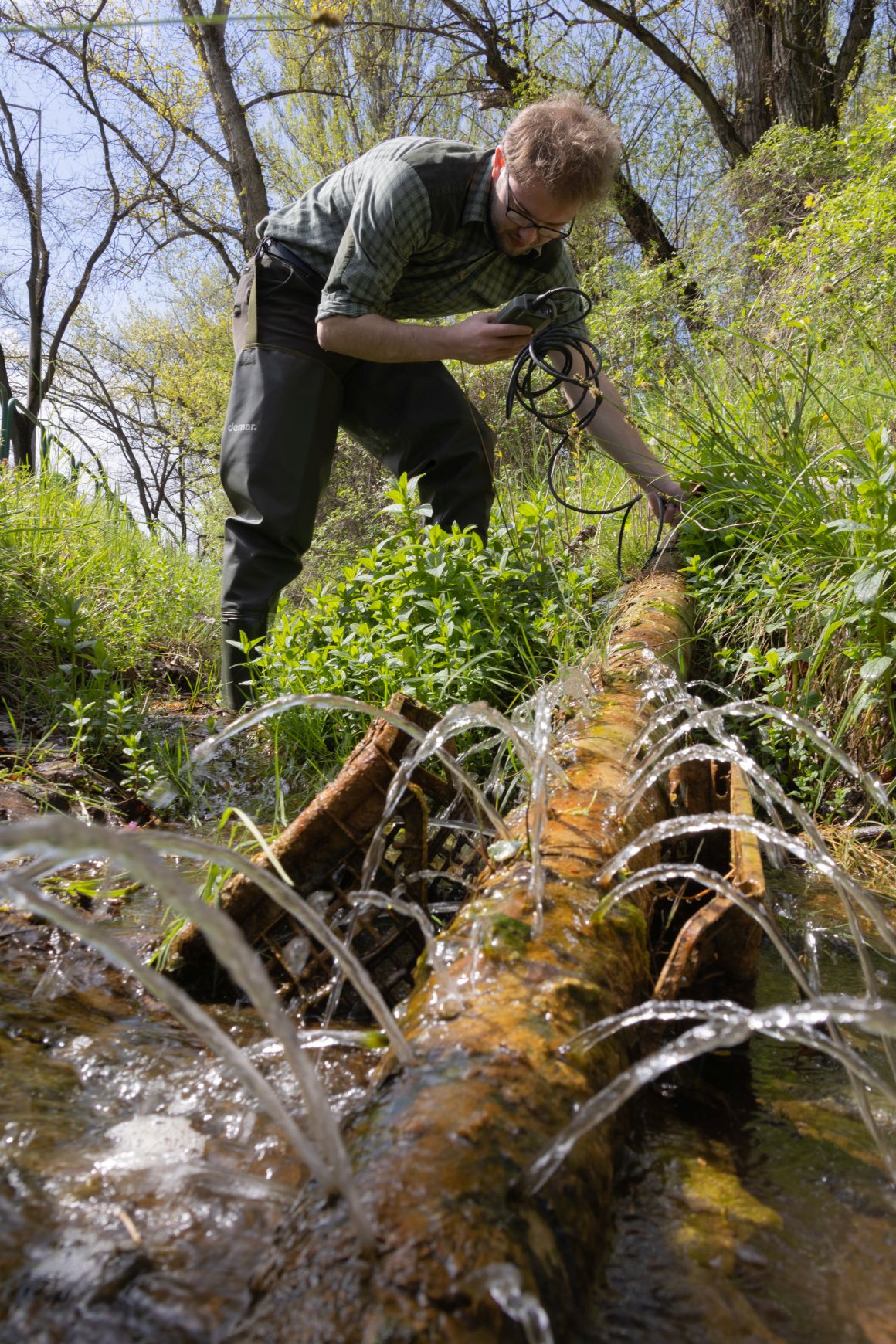 , Text k fotce:
Measurement of physical and chemical parameters of the source of the tributary of the Barát stream
, Text k fotce:
Measurement of physical and chemical parameters of the source of the tributary of the Barát stream - Foto:
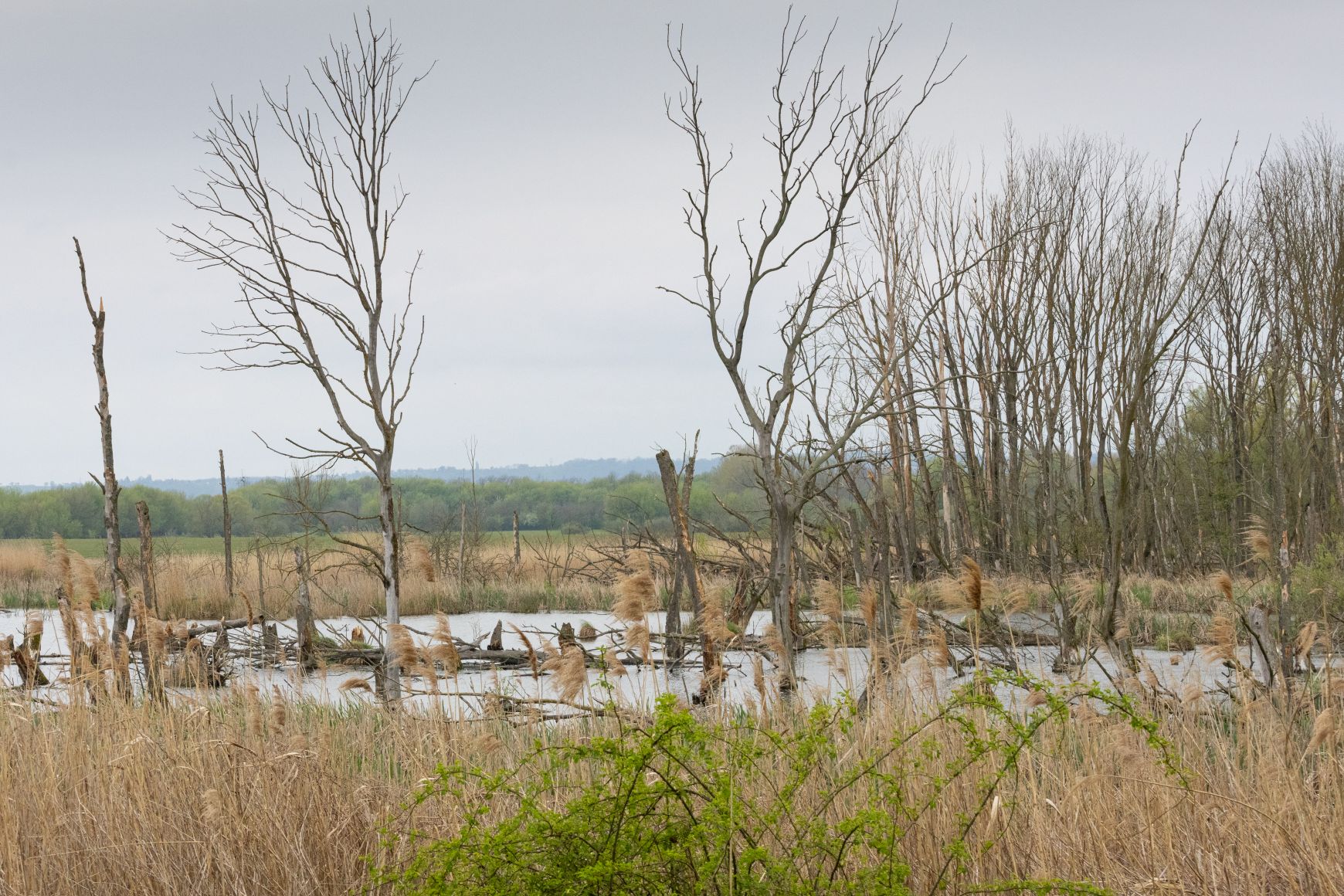 , Text k fotce:
Kis-Balaton water protection area – an artificial wetland built to capture nutrients from the Zala River, the main tributary of Lake Balaton
, Text k fotce:
Kis-Balaton water protection area – an artificial wetland built to capture nutrients from the Zala River, the main tributary of Lake Balaton - Foto:
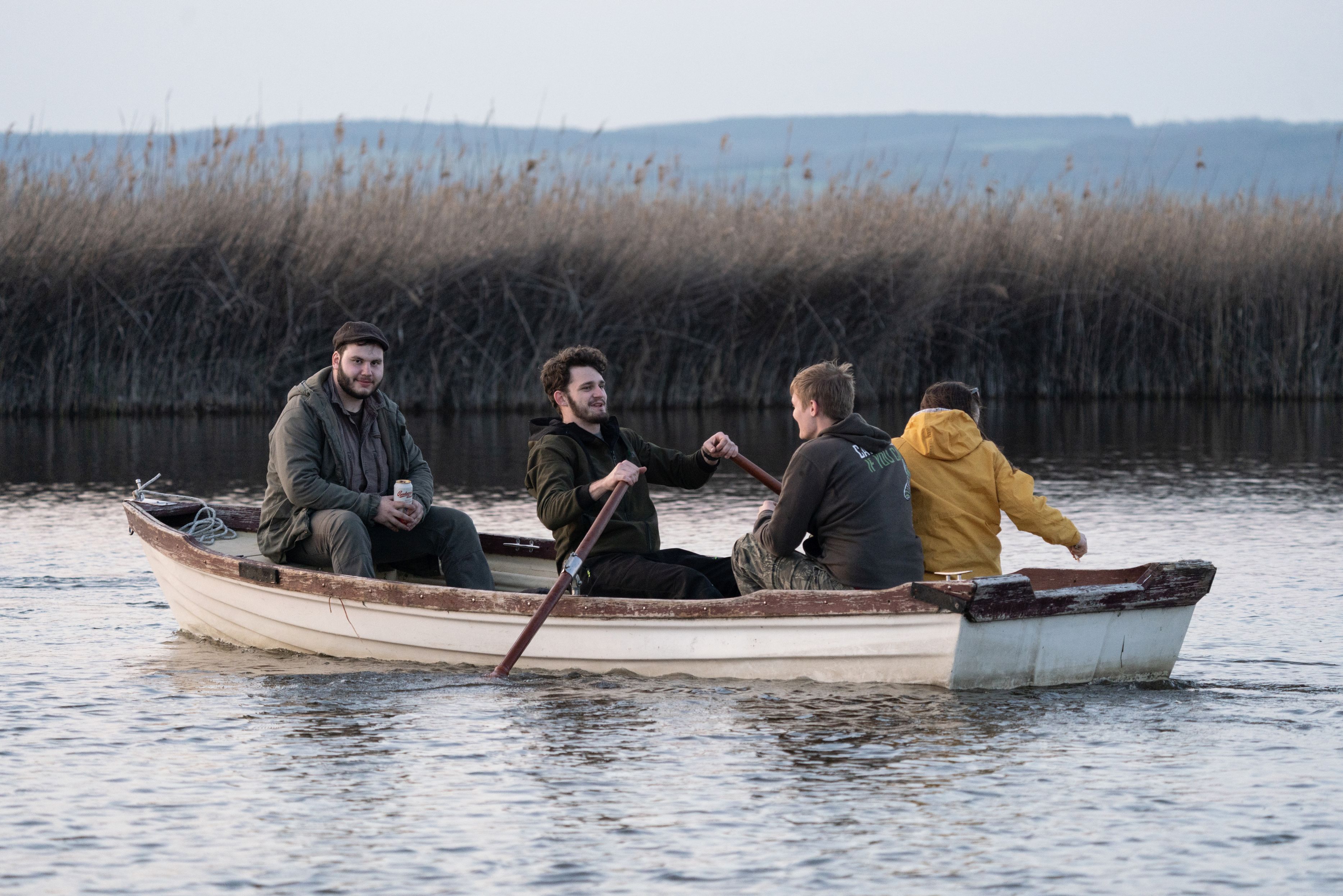 , Text k fotce:
Paddling to the zooplankton and macrozoobenthos sampling site on Lake Velence
, Text k fotce:
Paddling to the zooplankton and macrozoobenthos sampling site on Lake Velence - Foto:
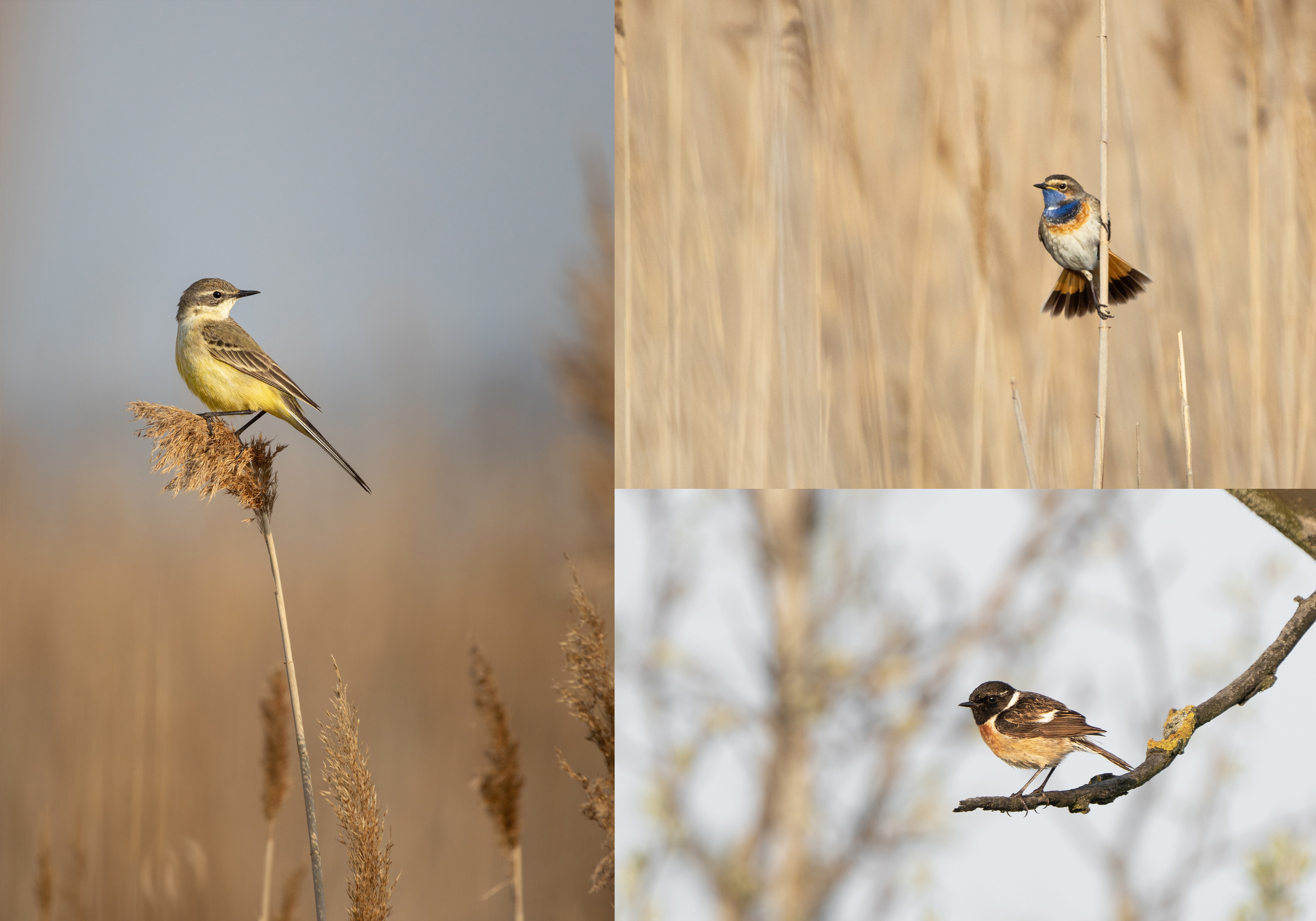 , Text k fotce:
Representatives of the bird fauna of the reeds of Lake Velence. Meadow warbler, blue-throated nightingale and black-headed potato warbler
, Text k fotce:
Representatives of the bird fauna of the reeds of Lake Velence. Meadow warbler, blue-throated nightingale and black-headed potato warbler
There are not many places with a strikingly high diversity of non-native species. Many of them can be seen in Hungary, especially in the thermal water localities.
We organized a field trip with the students to the localities that have become the object of our research in recent years, so they can get to know the exciting communities of these specific habitats. We had the opportunity to explore the outflows of Lake Hévíz, the largest thermal lake in Europe, the Városliget park in the Budapest centre, a thermal tributary of the Barát brook and Sulák brook. At these locations, students could practically try catching crayfish, fish and macrozoobenthos and thus practically see a very rich community of cichlids, a syntopic population of spiny cheek crayfish (Faxonius limosus) and red swamp crayfish (Procambarus clarkii), marbled crayfish (P. virginalis) and red cherry shrimp (Neocaridina davidi), very popular with aquarists, and many other non-native species. As a reward after a long day of (cray)fishing, the students enjoyed caught and cooked crayfish.
In contrast to these habitats saturated with non-native species, we visited the Kis-Balaton natural wetlands, built to improve the quality of the inflow water to Lake Balaton, and Lake Velence, which, in addition to its specific water characteristics and floating reed islands, stands out for its vast diversity of water and wetland birds. During the field trip, we were accompanied by our Hungarian colleagues András Weiperth and Árpád Ferincz, thanks to whom we could spot most of the native and non-native fish species found here using electrofishing, e.g., Amur Bitterling (Rhodeus sericeus), loach (Cobitis elongatoides). We did not find European Mud-minnow (Umbra krameri), which becomes rarer nowadays due to non-native gobiid species (Neogobius melanostomus, N. fluviatilis) and Chinese sleeper (Percottus glenii). Despite the massive density of non-native species, it was possible to catch the native species of water turtle - the European pond turtle (Emys orbicularis).
We ended the excursion visiting the biological station on the shore of Lake Neusidler in the town of Illmitz (Austria), where Gilbert Hafner gave us an engaging presentation of the history of the Lake and, on a short walk around the biological station showed the local phenomenon of salt marshes, once again hosting a high diversity of wetland and water birds, as well as specific invertebrate fauna.
Do you want to have similar experiences? Sign up for studies at the FFPW USBtoday.
Photo: Jan Škrabánek and Martin Bláha
The faculty employees attended: Antonín Kouba, Martin Bláha, Lenka Kajgrová
I attended the recently concluded Annual Aquaculture Europe Conference held in Vienna from September 18th to 21st this year. During the event, I presented my research on the utilization of biocontrol and fungicides in aquaponics, engaging with experts on the importance of pest and disease management in the food production system. In addition to my presentation, I actively participated in various sessions covering topics such as alternative ingredients in nutrition, integrated multi-trophic aquaculture (IMTA), microbiome research, nature-based solutions, environmental impact and interactions, as well as aquaponics and urban farming – all of which are closely related to aquaponics. Lastly, I took part in networking gatherings aimed at fostering research connections for future studies and grant applications.
V rámci podpory mezinárodní spolupráce jsem navštívil Leibnizův institut pro sladkovodní ekologii a vnitrozemský rybolov (IGB) v Berlíně za účelem společného výzkumného projektu. IGB je se svými 37 různými výzkumnými skupinami největším německým výzkumným centrem pro vnitrozemské vody a rybolov.
Tato spolupráce se zaměřuje na zkoumání slizniční imunity pstruha duhového, která je důležitým faktorem pro udržitelné postupy v akvakultuře. Přidáním přírodních látek do chovné vody jsme zvýšili slizniční imunitu a zlepšili antibakteriální potenciál. Díky tomu se pstruzi duhoví mohou lépe chránit proti patogenům ve vodě, čímž se sníží potřeba chemických látek nebo antibiotik.
Napsala: Thora Lieke, MSc. Dr. rer. nat.
FFPW employee Dr. Koushik Roy, Ph.D. was invited as a contributing young scientist to a 4-day (16.10.2023 to 19.10.2023) policy drafting workshop co-organised by the German National Academy of Sciences Leopoldina and the Academia Brasileira de Ciências (ABC). The event was hosted at IGB Berlin campus. It brought together selected young aquaculture scientists and senior aquatic scientists from Europe and Brazil for an intensive meeting that involved scientific debate, group discussions, writers conclave, open peer-review, and sub-chapters writing. The mission was to formulate a strong policy draft for Central Eastern European and South American policymakers. The focus of the policy brief will be on "Sustainable and circular aquaculture for minimizing environmental impacts and security of future food systems”.Koushik highlighted the Czech efforts of establishing circularity and re-defining sustainable aquaculture from farm-to-fork. He highlighted research advancements made in the realm of aquaculture, including some examples from CENAKVA RP3. Koushik is one of the authors of the policy draft, which is expected to be released soon.
Photo courtesy: Markus Scholz for the Leopoldina.
Od 8. prosince do 17. prosince 2023 jsem vykonal pracovní cestu do jihovýchodní Asie s cílem navštívit partnery v Thajsku. Náplní cesty v první části byla návštěva v laboratoři Dr. Hien Van Doana (Department of Animal and Aquatic Sciences, Faculty of Agriculture, Chiang Mai University), kdy jsme pracovali na přípravě projektu ERASMUS+ a dvou společných publikacích. V druhé části cesty jsem navštívil prof. Channaronga Rodkhuma na Chulalongkorn University, Center of Excellence in Fish Infectious Diseases.
- Fotogalerie:
- Foto:
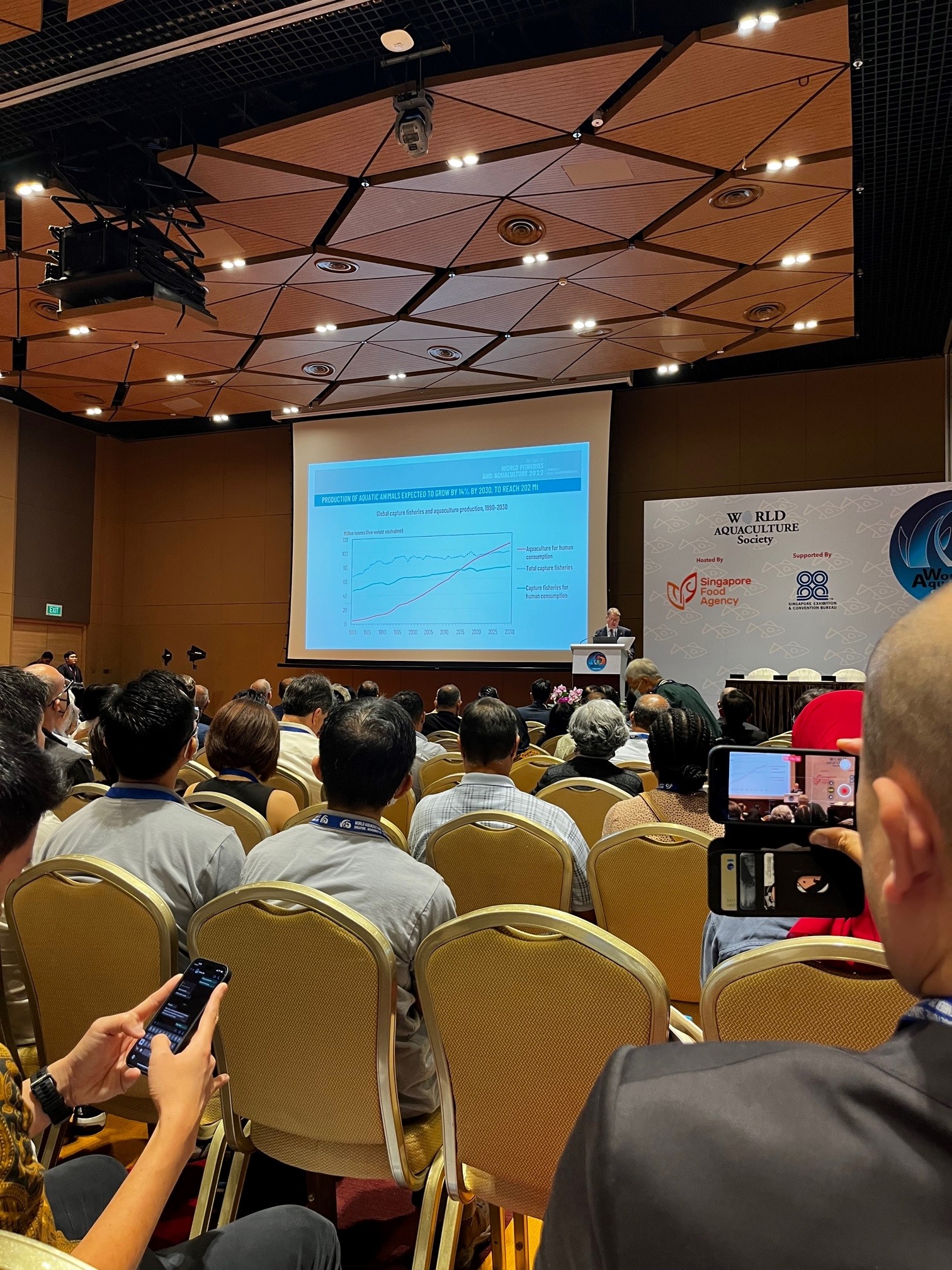 , Text k fotce:
Singapore
, Text k fotce:
Singapore - Foto:
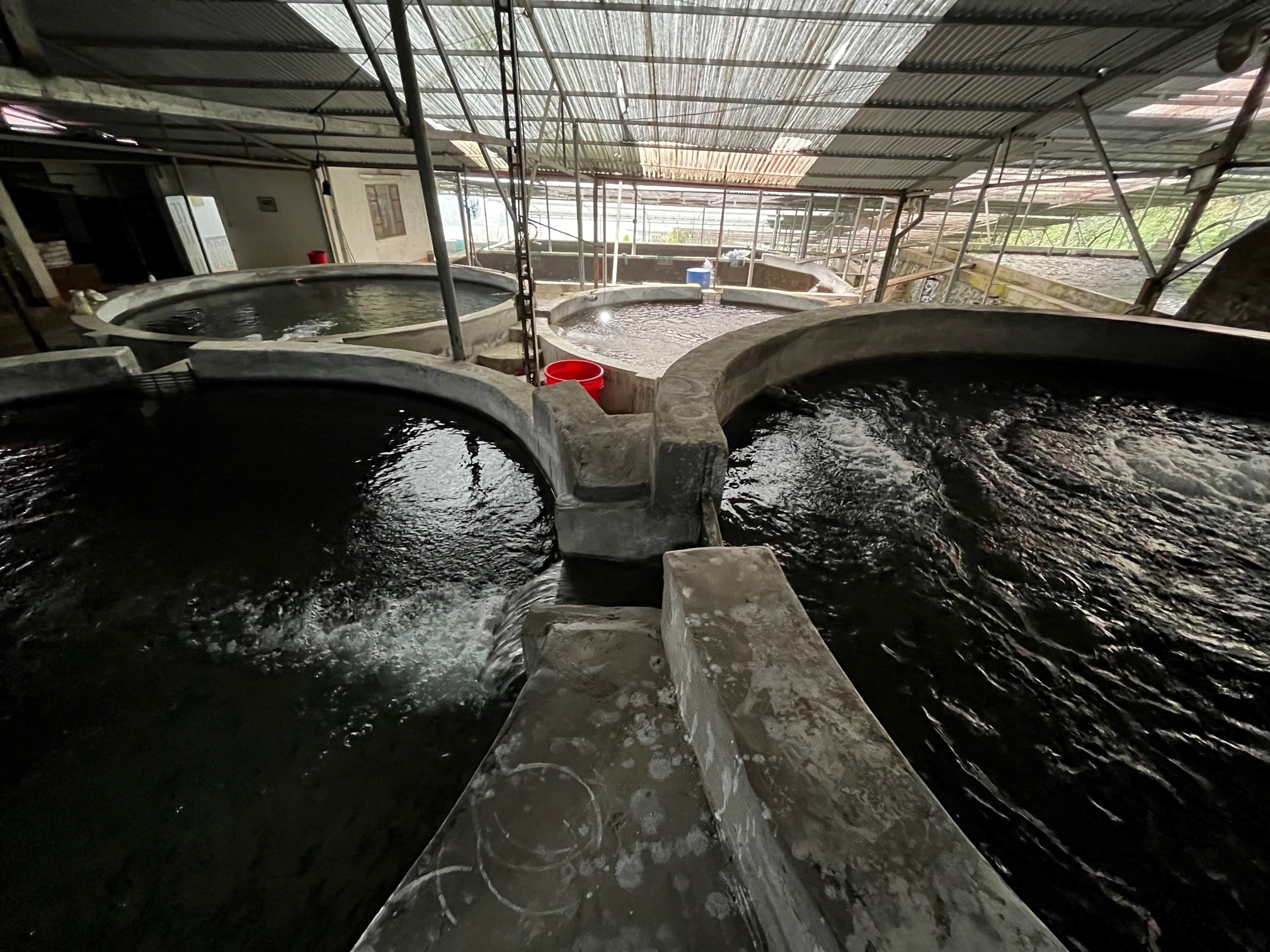 , Text k fotce:
Vietnam
, Text k fotce:
Vietnam - Foto:
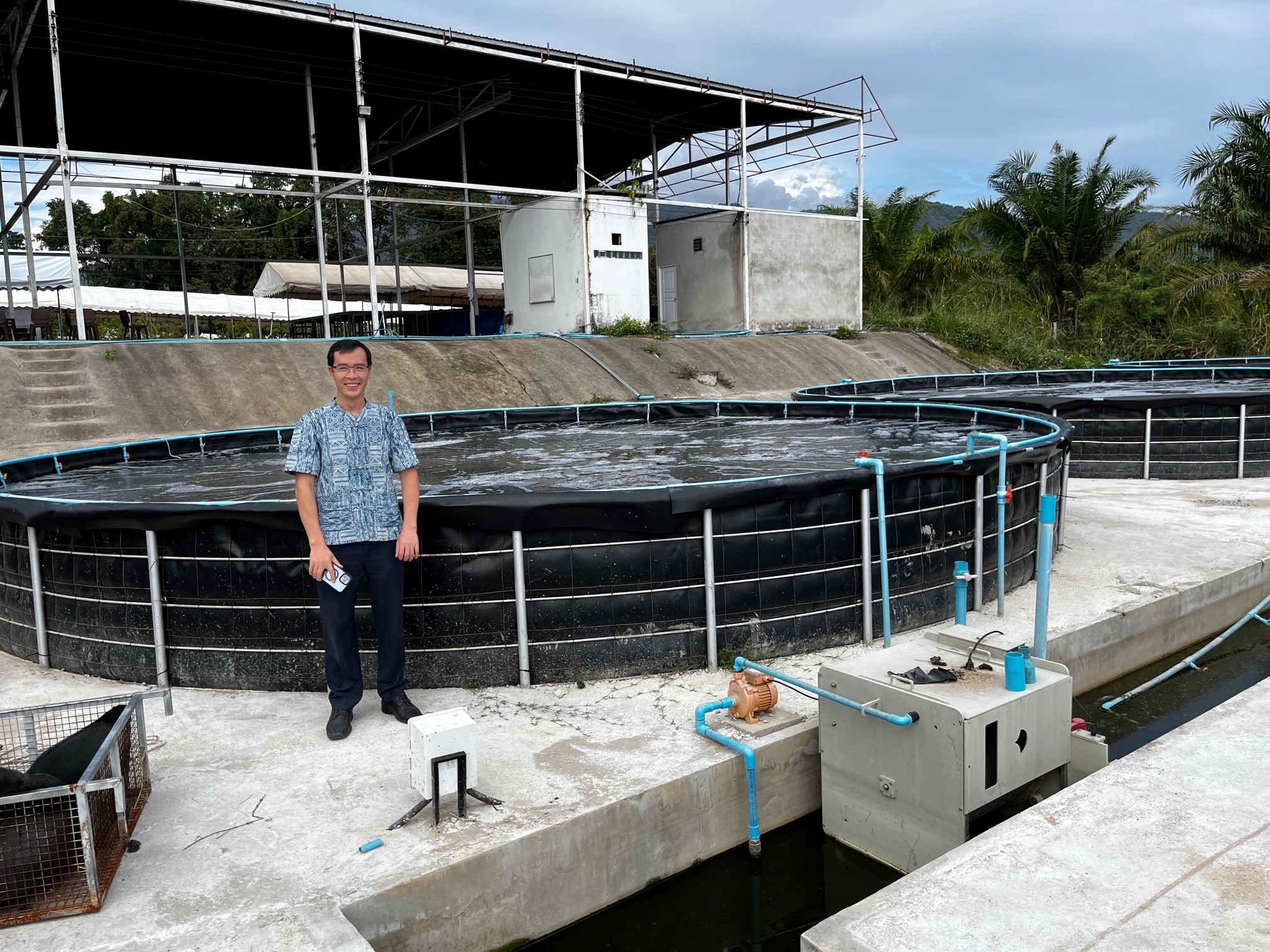 , Text k fotce:
Chiang Mai
, Text k fotce:
Chiang Mai
Od 22. listopadu do 9. prosince 2022 jsem vykonal pracovní cestu do jihovýchodní Asie s cílem navštívit partnery v Thajsku a Vietnamu a konferenci World Aquaculture v Singapuru. Náplní cesty v první části byla návštěva v laboratoři Dr. Hien Van Doana (Department of Animal and Aquatic Sciences, Faculty of Agriculture, Chiang Mai University), kdy jsme diskutovali možnosti další spolupráce v oblasti výživy, cirkulárních přístupů k akvakultuře a biofloc technologie. V další části cesty jsem se zúčastnil konference World Aquaculture v Singapuru. V poslední části cesty jsem navštívil v rámci bilaterálního projektu TAČR Delta spolupracující pracoviště Research Institute for Aquaculture Nr. 1. V rámci tohoto setkání proběhla prezentace dosavadních výsledků projektu testujícího použití nanobublin ozónu, kyslíku a vzduchu, plánovaní dalších aktivit. Součástí byly i návštěva u komerčních partnerů projektu (chovatelé pstruha duhového a jesetera sibiřského na severu Vietnamu).
Napsal: V. Stejskal
5. 7. 2022 navštívili Christoph Steinbach a Jiří Koleček Bundesamt für Wasserwirtschaft - Ökologische Station Waldviertel v Gebharts. Během pracovní návštěvy hovořili s Dr. Christianem Bauerem a Dr. Elisabeth Peham o společném projektu INTERREG, stejně jako o současných a budoucích příležitostech ke spolupráci. Primárním účelem této návštěvy bylo diskutovat význam histologického vyšetření rybích tkání v rybnících a akvakultuře. Tato cesta by nemohla být uskutečněna bez podpory grantu INTERREG KPF-01-258.
Ve spolupráci s Institutem akvakultury a rybářství při Wageningen University and Research, Nizozemsko (AFI WUR) jako vedoucí institucí připravujeme dvoufázový projekt Horizon zaměřený na výživu ryb v rybničních systémech, který integruje témata cirkulárního biohospodářství a zdraví planety. Ve dnech 16.-17.04.2023 proběhla oficiální schůzka k projektu v AFI WUR, které se za FROV JU zúčastnil doc. Ing. Jan Mráz, Ph.D. (jako spoluřešitel projektu) a Dr. Koushik Roy (jako hlavní řešitel pracovního balíčku).
Setkání proběhlo úspěšně. Pracovní balíček, za který by byla FROV JU zodpovědná, by se týkal "rybniční akvakultury a výživy kaprů" v rámci „VP3 – Udržitelná akvakultura“ výzkumného centra CENAKVA.
Je také potěšující, že výzkumná skupina zabývající se výživou ryb v malých rybnících na FROV JU, konkrétně Ústavu akvakultury a ochrany vod (UAOV), získala mezinárodní pozornost vědců zaměřených na potravinový systém a odborníků na výživu zvířat. Na fotografii je začínající vědkyně zabývající se potravinovým systémem Dr. Ollie van Hal z AFI WUR, která představila modely k řešení budoucího suchozemského potravinového systému a později hovořila o tom, jak by FROV JU mohla pomoci rozšířit model díky integraci vodního potravinového systému s českými rybníky. Dr. Koushik Roy dále informoval o podaném projektu GAČR týkající se zahraničního postdoktorandského stipendia na AFI WUR, které by v případě úspěchu mohlo být využito k rozvoji podobných modelů.
- Fotogalerie:
- Foto:
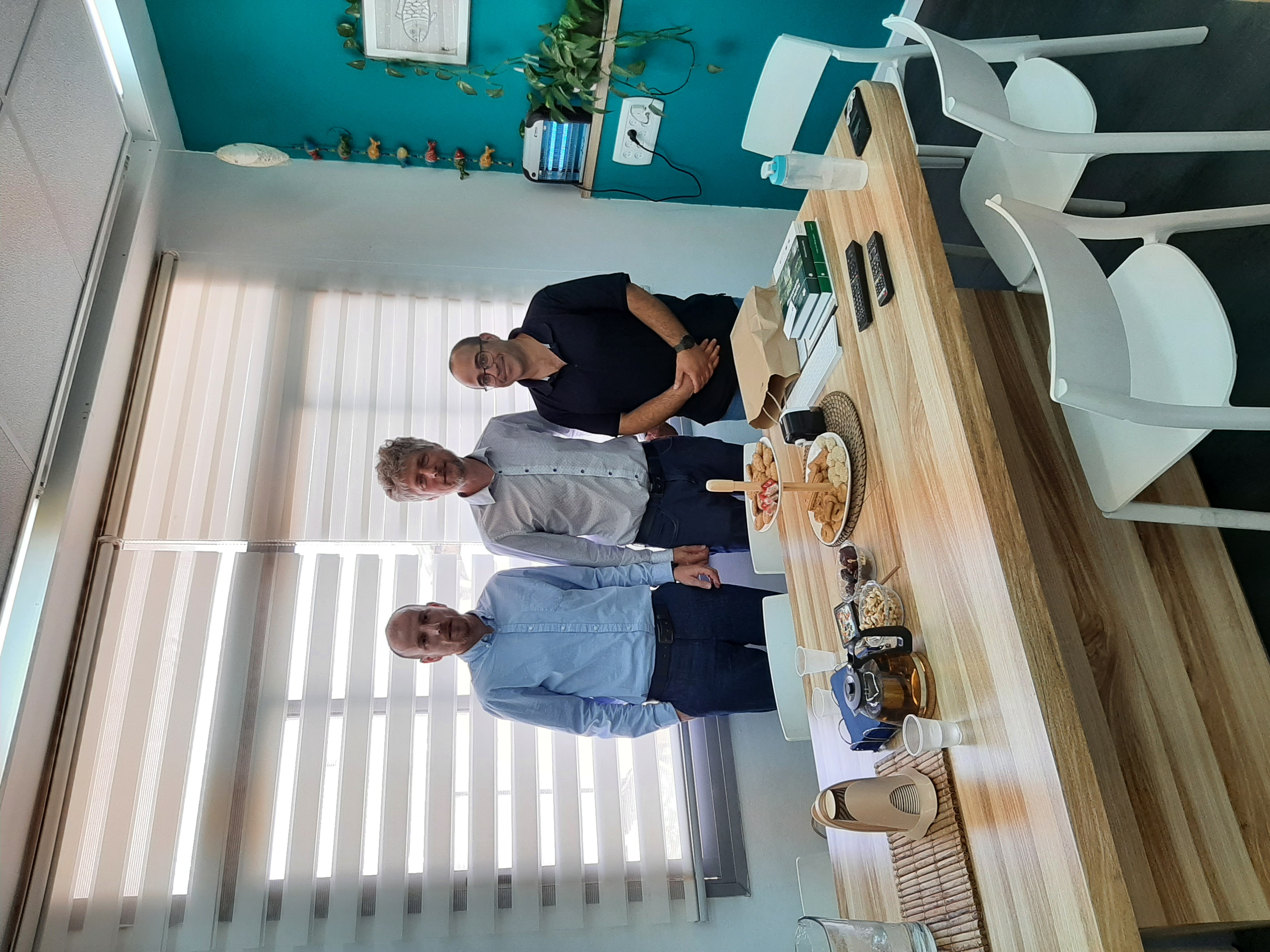
- Foto:
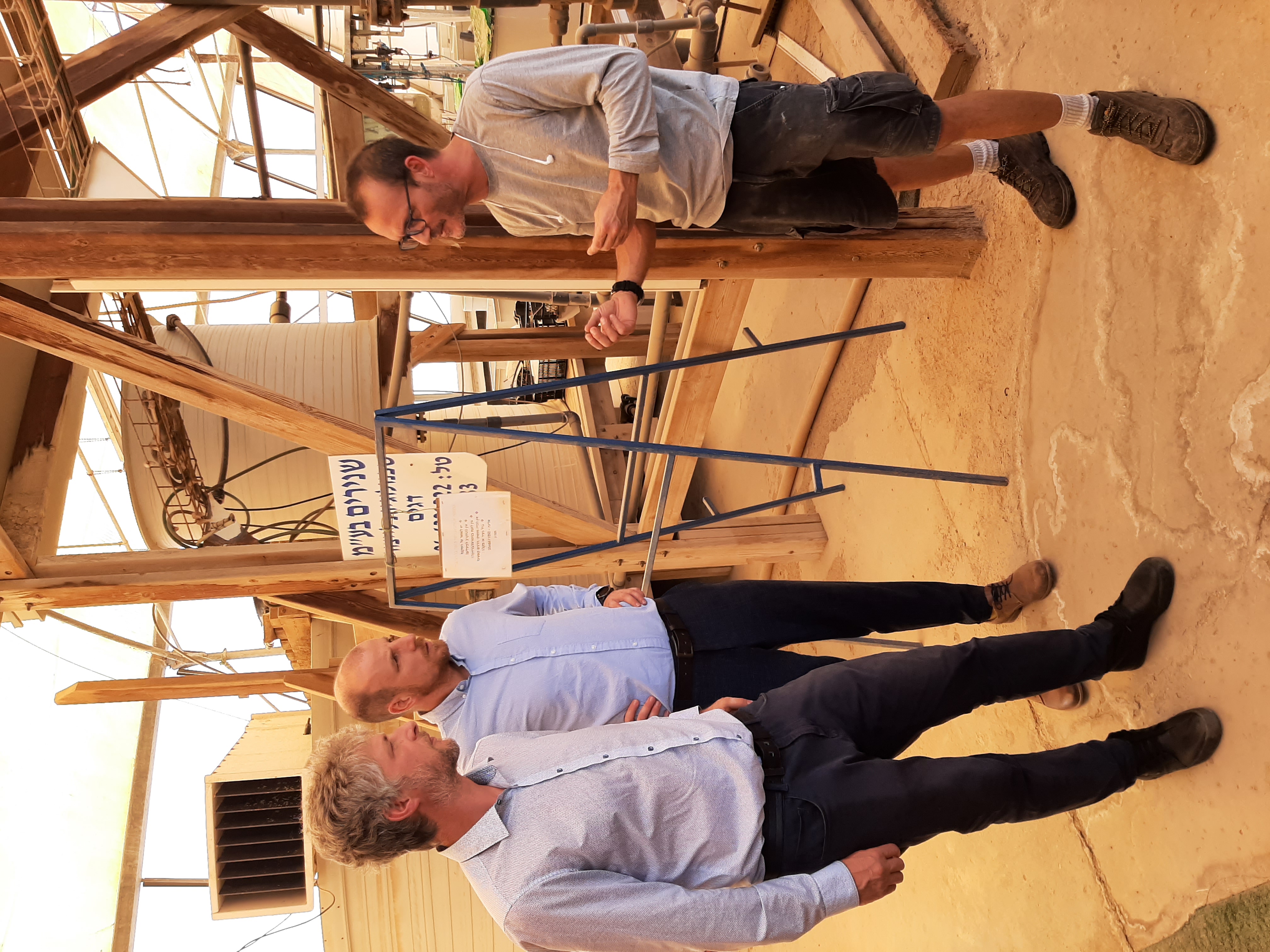
From 16th to 20th May 2022, representatives of the FFPW USB, Vladimír Žlábek, Michal Hojdekr and Martin Vlček, took part in internships aimed at strengthening the expertise and know-how in the areas of Management, International affairs and development, Ecology, Environmental protection and Aquaculture. The internship took place in the National Center for Mariculture of the Israel Oceanographic and Limnological Research in Eilat.
- Fotogalerie:
- Foto:
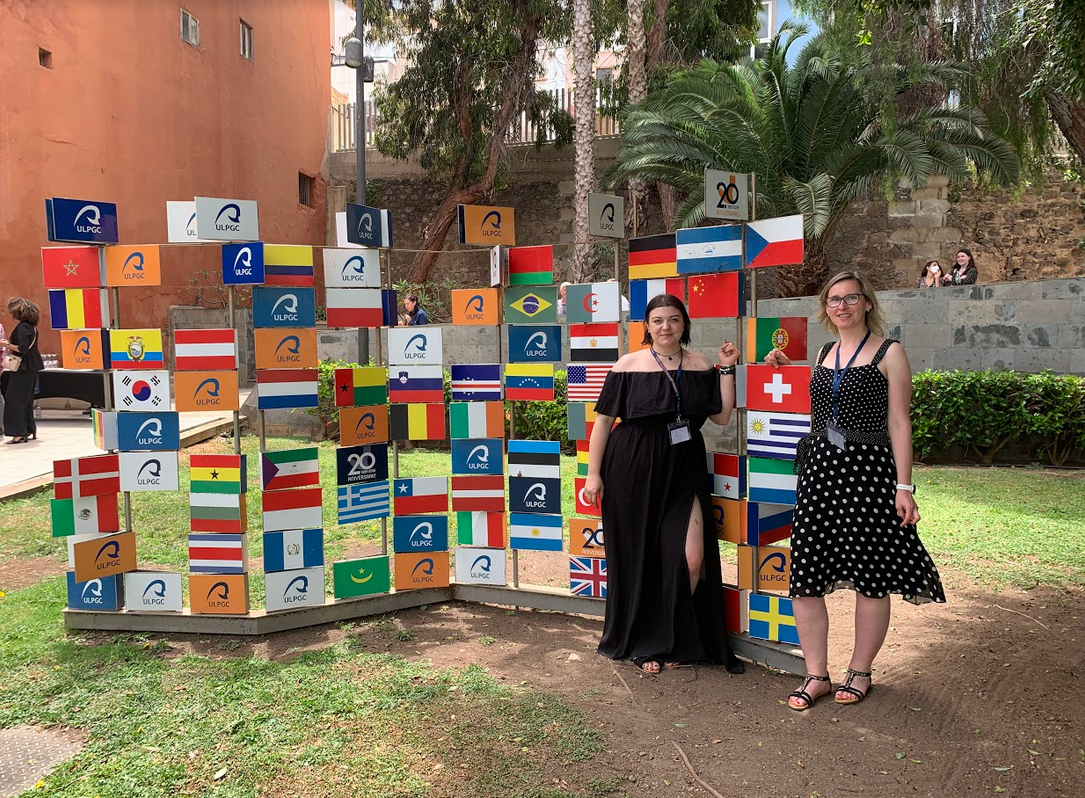
- Foto:
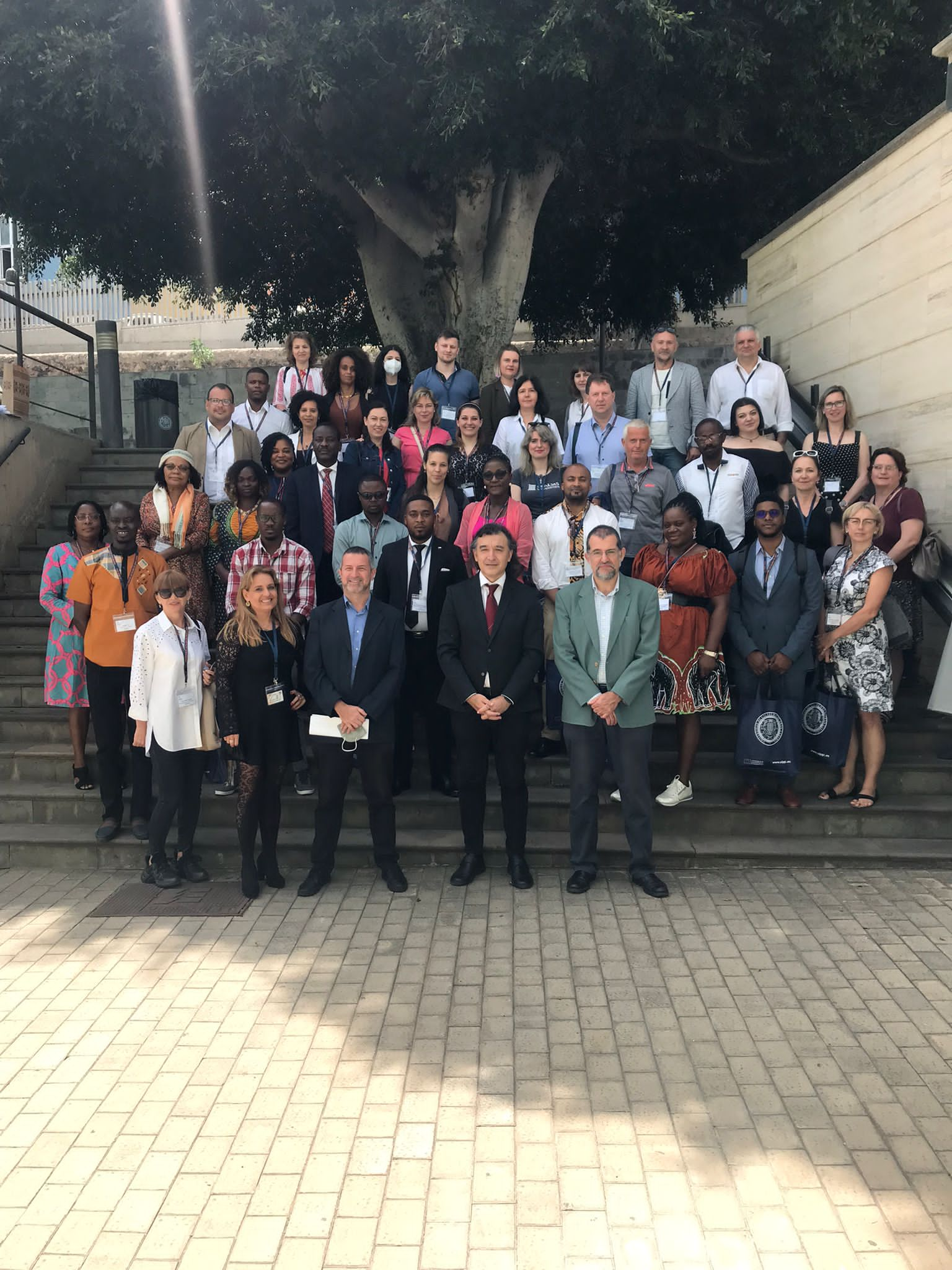
From 9 to 13 May, we (Alžběta Strouhová, Lucie Kačerová) participated in the Staff Week, organised as part of the Erasmus + program by the University of Las Palmas de Gran Canaria in Spain. Our interest was to establish new contacts at the international level. Staff Week was attended by 40 participants from 17 European and African countries. As part of the program, we visited, among others, the Marine Science and Technology Park and The Oceanic Platform of the Canary Islands (PLOCAN).
- Fotogalerie:
- Foto:
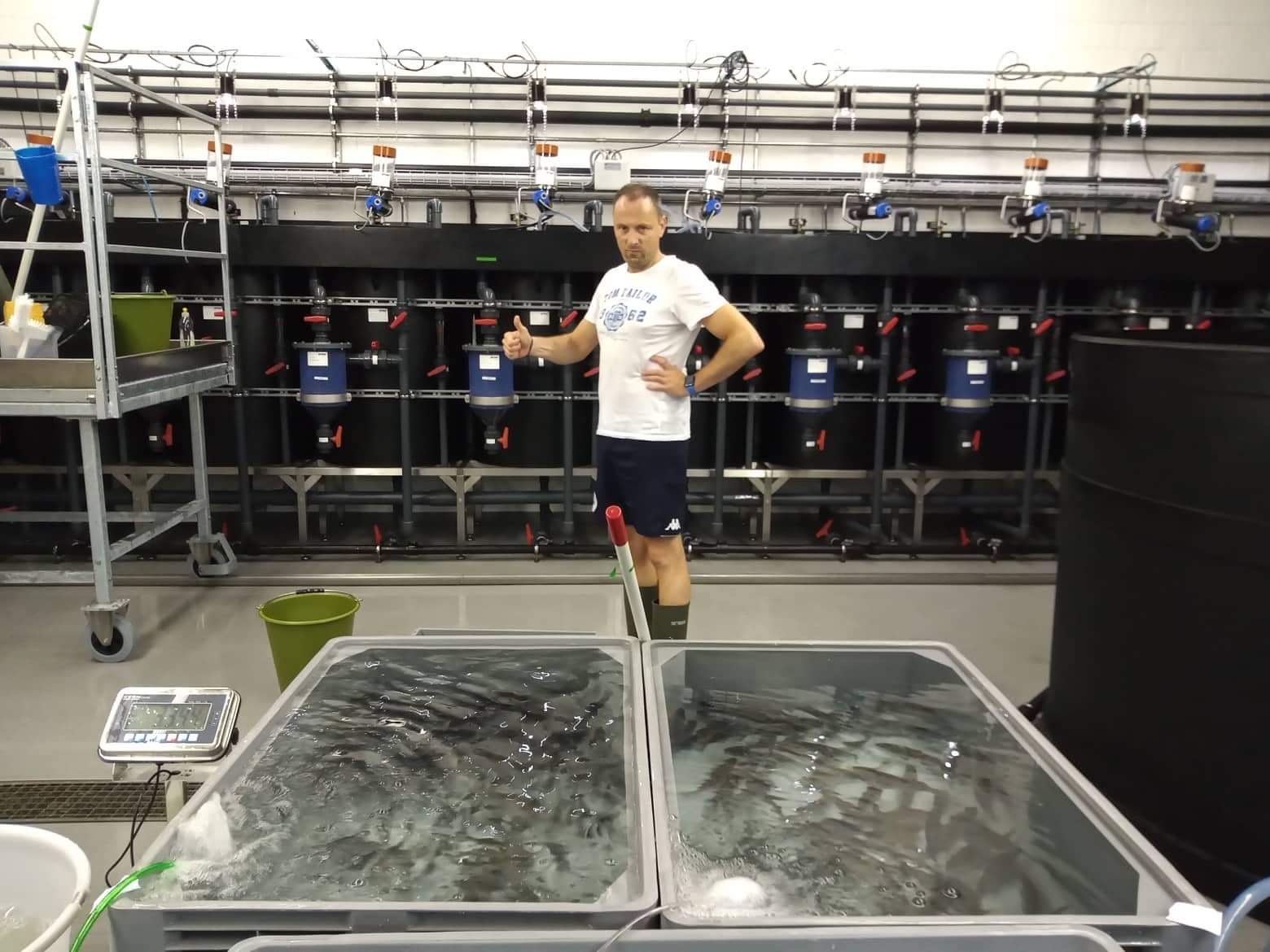
- Foto:
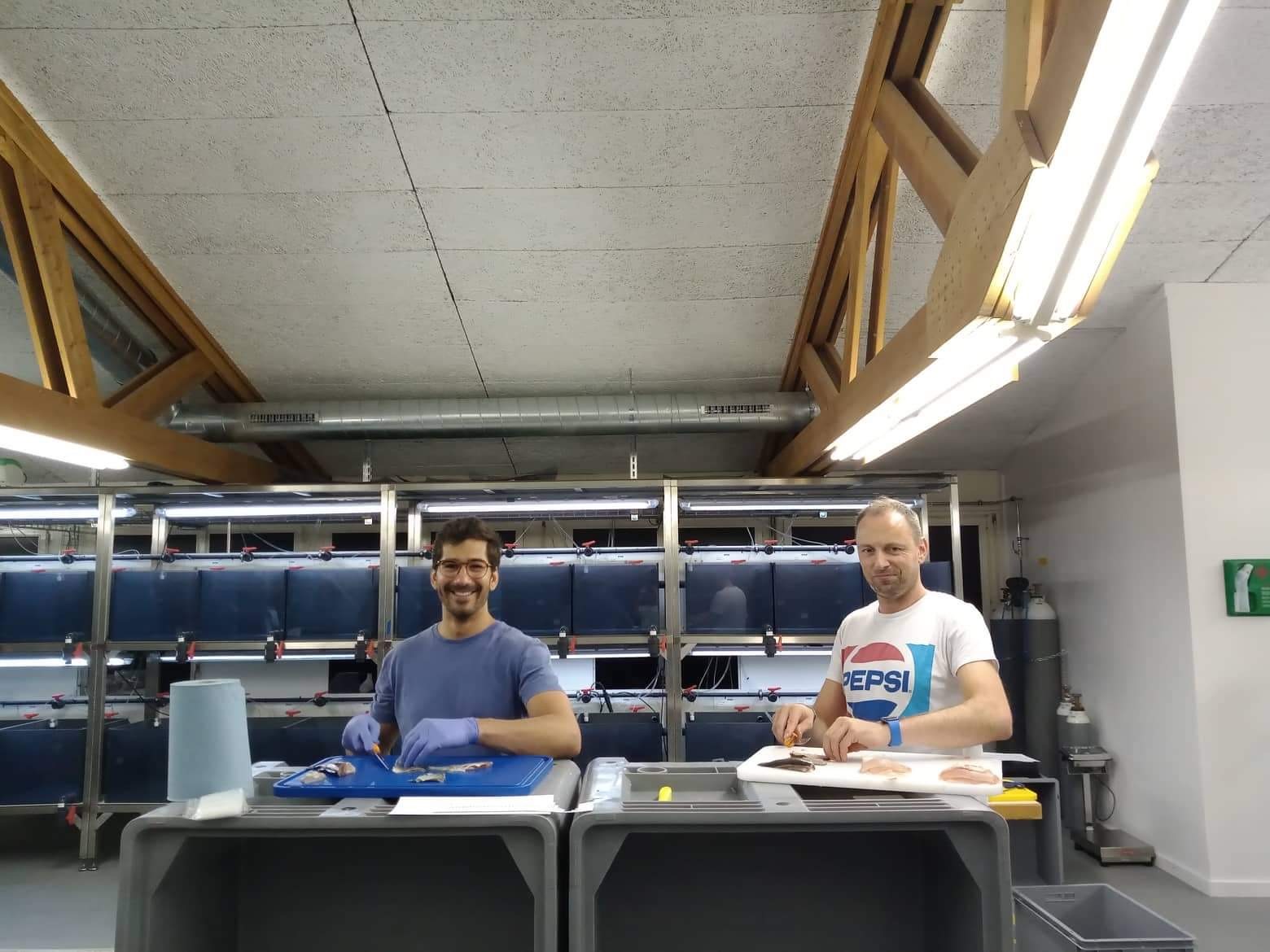
From 12 to 14 July 2022, I paid a visit to AquaForum, Bern University of Applied Science (Switzerland) and conducted a final sampling for European perch fed different level of Hermetia illucens meal in combination with poultry meal as replacement for fish meal. The aim of the trip was also preparation and design for next joint experiment (collaboration with RethinkResource GmbH, Coop Switzerland and Tropenhaus Frutigen).
- Fotogalerie:
- Foto:
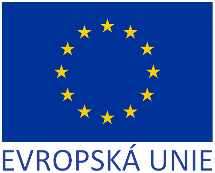
- Foto:
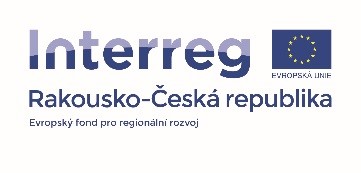
On April 13th and 14th, 2022, I attended a joint INTERREG workshop in Aigen-Schlägl, Austria, with colleagues from the Laboratory of Environmental Chemistry and Biochemistry¨(Jiří Koleček, Vladimír Žlábek). The aim of the workshop was to establish cooperation with BOKU Vienna in the field of Environmental chemistry/Biochemistry. For this purpose, a number of professional presentations were held and colleagues from BOKU prepared interesting excursions with practical examples of the results of their activities in the field. The workshop took place within the project KPF-01-335.
This event was attended by: Koleček Jiří, Randák Tomáš, Turek Jan, Avramovic Mladen, Žlábek Vladimír, Fedorova Ganna, Grabic Roman, Koubová Anna, Bořík Adam a Brooks Bryan William.
On the 24. 7. 2023, together with Martin Bláha, Christoph Steinbach, Thora Lieke and Jan Regenda, I visited the Lehr- und Beispielsbetrieb Lindbergmühle, which belongs to the Bezirk Niederbayern - Fachberatung für Fischerei. We were received by the director dr. Stephan Paintner and his colleagues, and the subject of the working meeting was, in addition to a detailed tour of the workplace, a discussion on potential topics of cooperation in the field of fisheries and water protection. During the working meeting, we also discussed issues of support with a representative of the regional council and the chairman of the association Natuparkeverband Bayern, Dr. Heinrich Schmidt.
In the period from 15 to 20 March 2022, Michal Hojdekr took part in a business trip to Dubai. He took part in the trip together with other university representatives, experts in the field of construction, transport and Smart Cities. The aim of this trip was, among other things, to participate in the world exhibition EXPO 2020, which is divided into 3 main sectors, namely Sustainability, Mobility and Opportunity. The official visit of the Czech national exposition, whose pavilion Czech spring is located in the Sustainability sector, was planned in such a way as to be able to visit the official presentation of FENIX, which together with the S.A.W.E.R. producing water from the air using solar energy, the core of the Czech pavilion. We were personally guided through the Czech pavilion by the General Commissioner of the Czech Pavilion, Mgr. Jiří František Potužník.
Sustainability and social responsibility have recently been a strong issue in the university environment. In the context of these trends, the knowledge gained during the business trip will be further transferred to the JU environment.
- Fotogalerie:
- Foto:
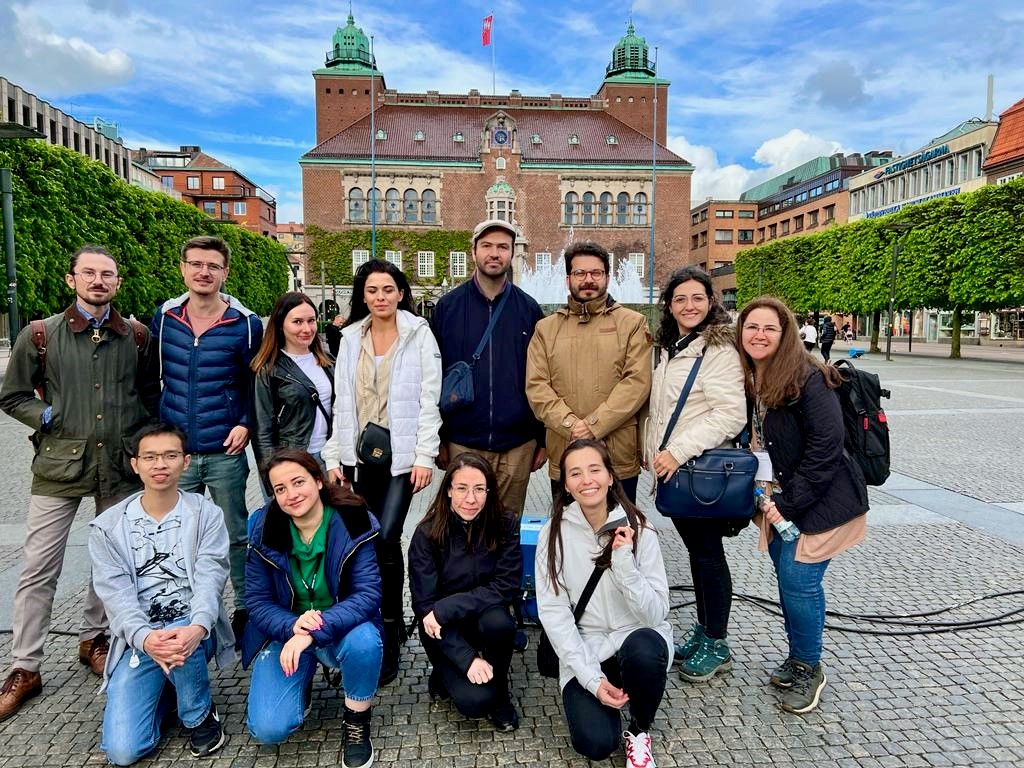
- Foto:
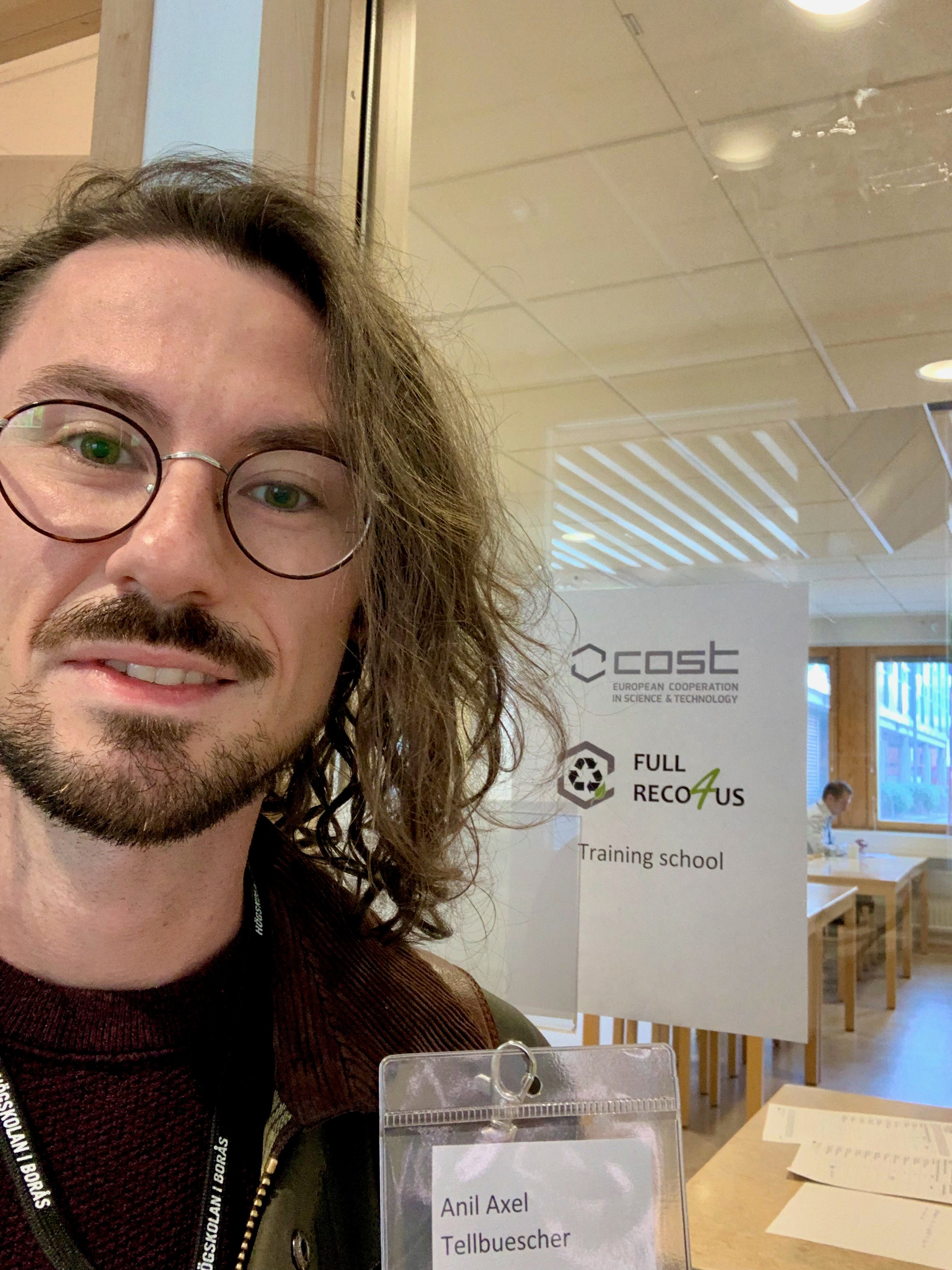
- Foto:
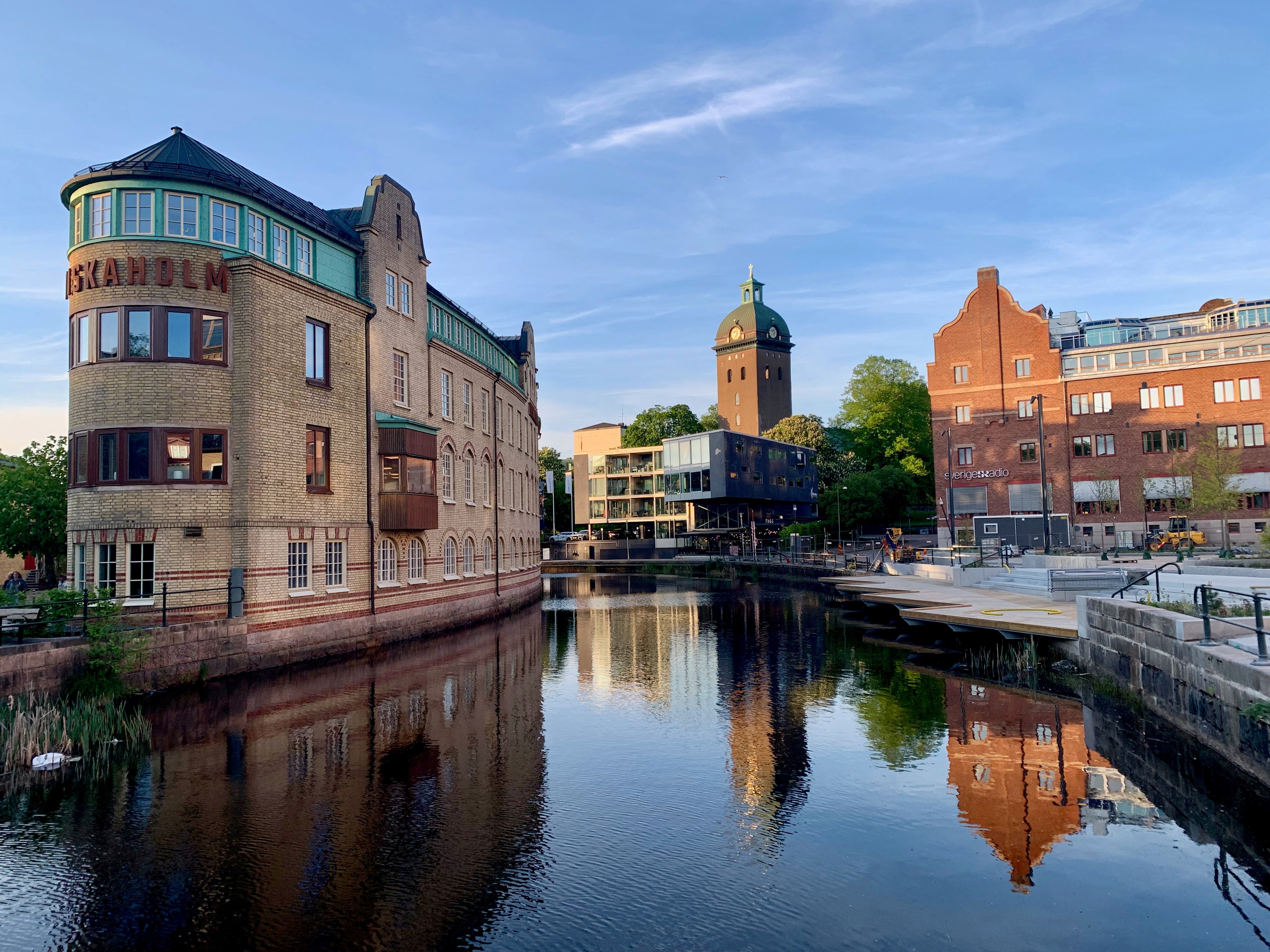
- Foto:
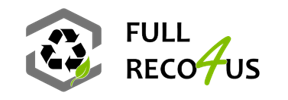
- Foto:

From May 23rd till May 27th, I attended the International Training School on Sustainable Resource Recovery Strategies Towards Zero Waste at the University of Borås in Sweden. The training, organized by FULLRECO4US - COST Action 20133, covered a broad range of topics, for instance, laws, regulations, policies and social aspects of resource recovery and the techno-economic assessment of waste valorization technologies. Furthermore, insights into current ‘hot topics’ such as anaerobic sludge digestion, bioreactors, and nutrient recovery from (waste)water were given.
I am looking forward to implementing the acquired knowledge in my research with the help of my colleagues at FROV and my new contacts abroad. I want to acknowledge the financial support I received from the COST Action to participate in the training in person.
- Fotogalerie:
- Foto:
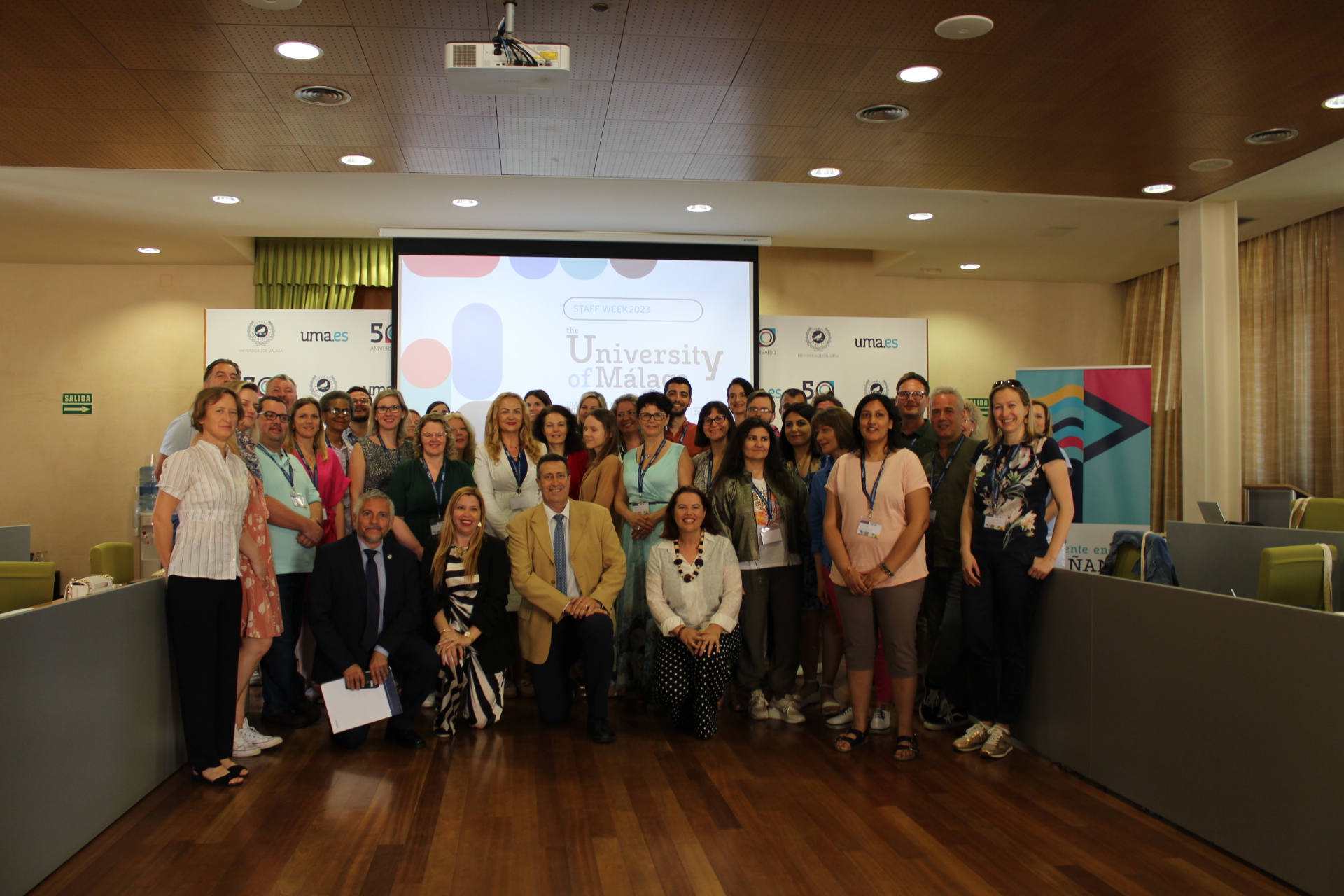
From 8th to 12thMay 2023 I participated in the "staff week" at the University of Malaga in Spain. A total of 50 staff members from different universities (from a total of 30 countries) participated in this staff week. The week's programme included mainly familiarization with the University of Malaga, including a visit to the Rector's Office and networking with the possibility of cooperation.
































